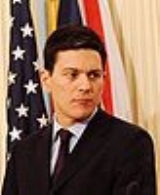
Secretary of State for Foreign and Commonwealth Affairs
Encyclopedia
The Secretary of State for Foreign and Commonwealth Affairs, commonly referred to as the Foreign Secretary, is a senior member of Her Majesty's Government heading the Foreign and Commonwealth Office
and regarded as one of the Great Offices of State
. The Secretary of State's remit include: relations with foreign countries, matters pertaining to the Commonwealth of Nations
and the overseas territories
in addition to the promotion of British interests abroad. The Foreign Secretary also has responsibility for the Secret Intelligence Service
MI6, who are directly accountable to the Foreign Secretary.
and Southern Department
s became the Home
and Foreign Offices respectively. The position of Secretary of State for Foreign and Commonwealth Affairs came into existence in 1968 with the merger of the functions of Secretary of State for Foreign Affairs and Secretary of State for Commonwealth Affairs
into a single Department of State
. The India Office
was a predecessor department of the Foreign Office.
The Foreign Secretary is a member of the Cabinet
, and the post is considered one of the Great Offices of State
. The Foreign Secretary works out of the Foreign Office in Whitehall
. The post's official residence
s are 1 Carlton Gardens
in London and Chevening
in Kent. In the 2006 reshuffle, Margaret Beckett
became the first (and only) woman to hold the post.
The current Secretary of State for Foreign and Commonwealth Affairs is the Right Honourable William Hague
MP.
! colspan=2|Name
! width=60px|Portrait
! colspan=2|Term of office
! colspan=2|Political party
! colspan=3|Prime Minister
|-
! style="background-color: " |
| Charles James Fox
|
| 27 March 1782
| 5 July 1782
(resigned)
| Whig
| style="background-color: " |
| align=center bgcolor=white|•
| style="background-color: " |
| The Marquess of Rockingham
|-
! style="background-color: " |
| The Lord Grantham
|
| 13 July 1782
| 2 April 1783
| Whig
| style="background-color: " |
| align=center bgcolor=white|•
| style="background-color: " |
| The Earl of Shelburne
|-
! style="background-color: " |
| Charles James Fox
|
| 2 April 1783
| 19 December 1783
| Whig
| style="background-color: " |
| align=center bgcolor=#A9A9A9|•
| style="background-color: " |
| The Duke of Portland
|-
! style="background-color: " |
| The Earl Temple
|
| 19 December 1783
| 23 December 1783
| Tory
| style="background-color: " |
| rowspan=3 align=center bgcolor=white|•
| rowspan=3 style="background-color: " |
| rowspan=3|William Pitt the Younger
|-
! style="background-color: " |
| The Marquess of Carmarthen
(Duke of Leeds from 1789)
|
| 23 December 1783
| May 1791
(resigned)
| Tory
| style="background-color: " |
|-
! style="background-color: " |
| The Lord Grenville
|
| 8 June 1791
| 20 February 1801
| Tory
| style="background-color: " |
|-
! colspan=10|
! colspan=2|Name
! width=60px|Portrait
! colspan=2|Term of office
! colspan=2|Political party
! colspan=3|Prime Minister
|-
! style="background-color: " |
| The Lord Hawkesbury
(subsequently
Earl of Liverpool)
|
| 20 February 1801
| 14 May 1804
| Tory
| style="background-color: " |
| align=center bgcolor=white|•
| style="background-color: " |
| Henry Addington
|-
! style="background-color: " |
| The Lord Harrowby
|
| 14 May 1804
| 11 January 1805
| Tory
| style="background-color: " |
| rowspan=2 align=center bgcolor=white|•
| rowspan=2 style="background-color: " |
| rowspan=2|William Pitt the Younger
|-
! style="background-color: " |
| The Lord Mulgrave
|
| 11 January 1805
| 7 February 1806
| Tory
| style="background-color: " |
|-
! style="background-color: " |
| Charles James Fox
|
| 7 February 1806
| 13 September 1806
(died)
| Whig
| style="background-color: " |
| rowspan=2 align=center bgcolor=#A9A9A9|•
| rowspan=2 style="background-color: " |
| rowspan=2|Lord Grenville
|-
! style="background-color: " |
| Viscount Howick
(subsequently
Earl Grey)
|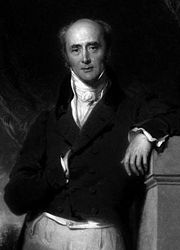
| 24 September 1806
| 25 March 1807
| Whig
| style="background-color: " |
|-
! style="background-color: " |
| George Canning
|
| 25 March 1807
| 11 October 1809
(resigned)
| Tory
| style="background-color: " |
| rowspan=2 align=center bgcolor=white|•
| rowspan=2 style="background-color: " |
| rowspan=2|The Duke of Portland
|-
! style="background-color: " |
| The Earl Bathurst
|
| 11 October 1809
| 6 December 1809
| Tory
| style="background-color: " |
|-
! style="background-color: " |
| The Marquess Wellesley
|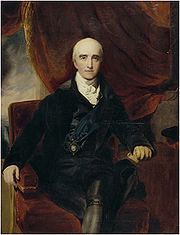
| 6 December 1809
| 4 March 1812
|
| style="background-color: " |
| align=center bgcolor=white|•
| style="background-color: " |
| Spencer Perceval
|-
! style="background-color: " |
| Viscount Castlereagh
|
| 4 March 1812
| 12 August 1822
(died)
| Tory
| style="background-color: " |
| rowspan=2 align=center bgcolor=white|•
| rowspan=2 style="background-color: " |
| rowspan=2|The Earl of Liverpool
|-
! style="background-color: " |
| George Canning
|
| 16 September 1822
| 30 April 1827
| Tory
| style="background-color: " |
|-
! rowspan=2 style="background-color: " |
| rowspan=2|The Earl of Dudley
| rowspan=2|
| rowspan=2|30 April 1827
| rowspan=2|2 June 1828
| rowspan=2|Tory
| rowspan=2 style="background-color: " |
| align=center bgcolor=#A9A9A9|•
| style="background-color: " |
| George Canning
|-
| align=center bgcolor=#A9A9A9|•
| style="background-color: " |
| The Viscount Goderich
|-
! style="background-color: " |
| The Earl of Aberdeen
|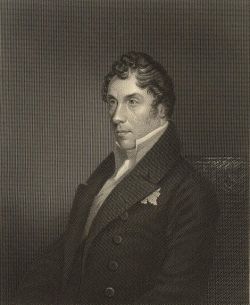
| 2 June 1828
| 22 November 1830
| Tory
| style="background-color: " |
| align=center bgcolor=white|•
| style="background-color: " |
| The Duke of Wellington
|-
! rowspan=2 style="background-color: " |
| rowspan=2|Viscount Palmerston
| rowspan=2|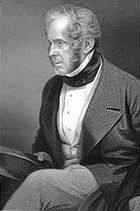
| rowspan=2|22 November 1830
| rowspan=2|14 November 1834
| rowspan=2|Whig
| rowspan=2 style="background-color: " |
| align=center bgcolor=white|•
| style="background-color: " |
| The Earl Grey
|-
| align=center bgcolor=white|•
| style="background-color: " |
| The Viscount Melbourne
|-
! rowspan=2 style="background-color: " |
| rowspan=2|The Duke of Wellington
| rowspan=2|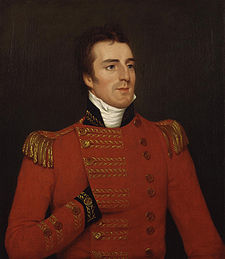
| rowspan=2|14 November 1834
| rowspan=2|18 April 1835
| rowspan=2|Tory
! rowspan=2 style="background-color: " |
| align=center bgcolor=white|•
| style="background-color: " |
| The Duke of Wellington
|-
| align=center bgcolor=white|•
| style="background-color: " |
| Sir Robert Peel
|-
! style="background-color: " |
| Viscount Palmerston
|
| 18 April 1835
| 2 September 1841
| Whig
| style="background-color: " |
| align=center bgcolor=white|•
•
| style="background-color: " |
| The Viscount Melbourne
|-
! style="background-color: " |
| The Earl of Aberdeen
|
| 2 September 1841
| 6 July 1846
| Conservative
| style="background-color: " |
| align=center bgcolor=white|•
| style="background-color: " |
| Sir Robert Peel
|-
! style="background-color: " |
| Viscount Palmerston
|
| 6 July 1846
| 26 December 1851
| Whig
| style="background-color: " |
| rowspan=2 align=center bgcolor=white|•
| rowspan=2 style="background-color: " |
| rowspan=2|Lord John Russell
|-
! style="background-color: " |
| The Earl Granville
|
| 26 December 1851
| 27 February 1852
| Whig
| style="background-color: " |
|-
! style="background-color: " |
| The Earl of Malmesbury
|
| 27 February 1852
| 28 December 1852
| Conservative
| style="background-color: " |
| align=center bgcolor=white|•
| style="background-color: " |
| The 14th Earl of Derby
|-
! style="background-color: " |
| Lord John Russell
|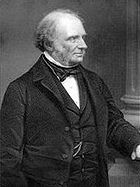
| 28 December 1852
| 21 February 1853
| Whig
| style="background-color: " |
| rowspan=2 align=center bgcolor=#A9A9A9|•
| rowspan=2 style="background-color: " |
| rowspan=2|The Earl of Aberdeen
|-
! rowspan=2 style="background-color: " |
| rowspan=2|The Earl of Clarendon
| rowspan=2|
| rowspan=2|21 February 1853
| rowspan=2|26 February 1858
| rowspan=2|Whig
| rowspan=2 style="background-color: " |
|-
| align=center bgcolor=white|•
| style="background-color: " |
| Viscount Palmerston
|-
! style="background-color: " |
| The Earl of Malmesbury
|
| 26 February 1858
| 18 June 1859
| Conservative
| style="background-color: " |
| align=center bgcolor=white|•
| style="background-color: " |
| The 14th Earl of Derby
|-
! style="background-color: " |
| Lord John Russell
(Earl Russell from 1861)
|
| 18 June 1859
| 3 November 1865
| Liberal
| style="background-color: " |
| align=center bgcolor=white|•
| style="background-color: " |
| Viscount Palmerston
|-
! style="background-color: " |
| The Earl of Clarendon
|
| 3 November 1865
| 6 July 1866
| Liberal
| style="background-color: " |
| align=center bgcolor=white|•
| style="background-color: " |
| The Earl Russell
|-
! rowspan=2 style="background-color: " |
| rowspan=2|Lord Stanley
(subsequently
15th Earl of Derby)
| rowspan=2|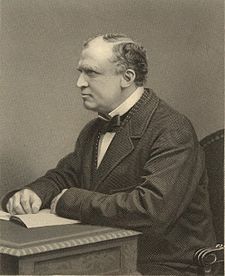
| rowspan=2|6 July 1866
| rowspan=2|9 December 1868
| rowspan=2|Conservative
| rowspan=2 style="background-color: " |
| align=center bgcolor=white|•
| style="background-color: " |
| The 14th Earl of Derby
|-
| align=center bgcolor=white|•
| style="background-color: " |
| Benjamin Disraeli
|-
! style="background-color: " |
| The Earl of Clarendon
|
| 9 December 1868
| 6 July 1870
| Liberal
| style="background-color: " |
| rowspan=2 align=center bgcolor=white|•
| rowspan=2 style="background-color: " |
| rowspan=2|William Ewart Gladstone
|-
! style="background-color: " |
| The Earl Granville
|
| 6 July 1870
| 21 February 1874
| Liberal
| style="background-color: " |
|-
! style="background-color: " |
| The 15th Earl of Derby
|
| 21 February 1874
| 2 April 1878
| Conservative
| style="background-color: " |
| rowspan=2 align=center bgcolor=white|•
| rowspan=2 style="background-color: " |
| rowspan=2|Benjamin Disraeli
|-
! style="background-color: " |
| The Marquess of Salisbury
|
| 2 April 1878
| 28 April 1880
| Conservative
| style="background-color: " |
|-
! style="background-color: " |
| The Earl Granville
|
| 28 April 1880
| 24 June 1885
| Liberal
| style="background-color: " |
| align=center bgcolor=white|•
| style="background-color: " |
| William Ewart Gladstone
|-
! style="background-color: " |
| The Marquess of Salisbury
|
| 24 June 1885
| 6 February 1886
| Conservative
| style="background-color: " |
| align=center bgcolor=white|•
| style="background-color: " |
| The Marquess of Salisbury
|-
! style="background-color: " |
| The Earl of Rosebery
|
| 6 February 1886
| 3 August 1886
| Liberal
| style="background-color: " |
| align=center bgcolor=white|•
| style="background-color: " |
| William Ewart Gladstone
|-
! style="background-color: " |
| The Earl of Iddesleigh
|
| 3 August 1886
| 12 January 1887
(died)
| Conservative
| style="background-color: " |
| rowspan=2 align=center bgcolor=white|•
| rowspan=2 style="background-color: " |
| rowspan=2|The Marquess of Salisbury
|-
! style="background-color: " |
| The Marquess of Salisbury
|
| 14 January 1887
| 11 August 1892
| Conservative
| style="background-color: " |
|-
! style="background-color: " |
| The Earl of Rosebery
|
| 18 August 1892
| 11 March 1894
| Liberal
| style="background-color: " |
| align=center bgcolor=white|•
| style="background-color: " |
| William Ewart Gladstone
|-
! style="background-color: " |
| The Earl of Kimberley
|
| 11 March 1894
| 21 June 1895
| Liberal
| style="background-color: " |
| align=center bgcolor=white|•
| style="background-color: " |
| The Earl of Rosebery
|-
! style="background-color: " |
| The Marquess of Salisbury
|
| 29 June 1895
| 12 November 1900
| Conservative
| style="background-color: " |
| align=center bgcolor=#A9A9A9|•
| style="background-color: " |
| The Marquess of Salisbury
|-
! colspan=10|
! colspan=2|Name
! width=60px|Portrait
! colspan=2|Term of office
! colspan=2|Political party
! colspan=3|Prime Minister
|-
! rowspan=2 style="background-color: " |
| rowspan=2|The Marquess of Lansdowne
| rowspan=2|
| rowspan=2|12 November 1900
| rowspan=2|4 December 1905
| rowspan=2|Liberal Unionist
| rowspan=2 style="background-color: " |
| align=center bgcolor=#A9A9A9|•
| style="background-color: " |
| The Marquess of Salisbury
|-
| align=center bgcolor=#A9A9A9|•
| style="background-color: " |
| Arthur Balfour
|-
! rowspan=3 style="background-color: " |
| rowspan=3|Sir Edward Grey, Bt
| rowspan=3|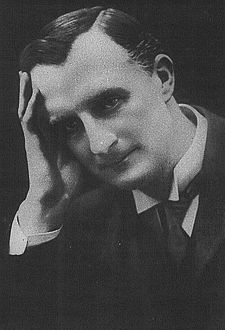
| rowspan=3|10 December 1905
| rowspan=3|10 December 1916
| rowspan=3|Liberal
| rowspan=3 style="background-color: " |
| align=center bgcolor=white|•
| style="background-color: " |
| Sir Henry Campbell-Bannerman
|-
| align=center bgcolor=white|•
| rowspan=2 style="background-color: " |
| rowspan=2|Herbert Henry Asquith
|-
| align=center bgcolor=#A9A9A9|•
|-
! style="background-color: " |
| Arthur Balfour
|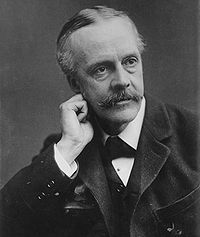
| 10 December 1916
| 23 October 1919
| Conservative
| style="background-color: " |
| rowspan=2 align=center bgcolor=#A9A9A9|•
| rowspan=2 style="background-color: " |
| rowspan=2|David Lloyd George
|-
! rowspan=3 style="background-color: " |
| rowspan=3|The Earl Curzon of Kedleston
(Marquess Curzon of Kedleston from 1921)
| rowspan=3|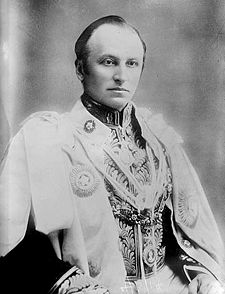
| rowspan=3|23 October 1919
| rowspan=3|22 January 1924
| rowspan=3|Conservative
| rowspan=3 style="background-color: " |
|-
| rowspan=2 align=center bgcolor=white|•
| style="background-color: " |
| Andrew Bonar Law
|-
| style="background-color: " |
| Stanley Baldwin
|-
! style="background-color: " |
| Ramsay MacDonald
|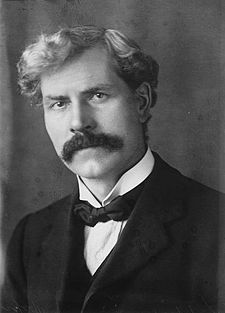
| 22 January 1924
| 3 November 1924
| Labour
| style="background-color: " |
| align=center bgcolor=white|•
| style="background-color: " |
| Ramsay MacDonald
|-
! style="background-color: " |
| Sir Austen Chamberlain
|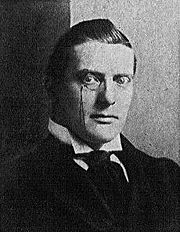
| 6 November 1924
| 4 June 1929
| Conservative
| style="background-color: " |
| align=center bgcolor=white|•
| style="background-color: " |
| Stanley Baldwin
|-
! style="background-color: " |
| Arthur Henderson
|
| 7 June 1929
| 24 August 1931
| Labour
| style="background-color: " |
| align=center bgcolor=white|•
| style="background-color: " |
| rowspan=3|Ramsay MacDonald
|-
! style="background-color: " |
| The Marquess of Reading
|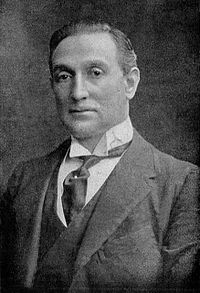
| 25 August 1931
| 5 November 1931
| Liberal
| style="background-color: " |
| align=center bgcolor=#A9A9A9|•
| rowspan=2 style="background-color: " |
|-
! style="background-color: " |
| Sir John Simon
|
| 5 November 1931
| 7 June 1935
| Liberal National
| style="background-color: " |
| align=center bgcolor=#A9A9A9|•
|-
! style="background-color: " |
| Sir Samuel Hoare, Bt
|
| 7 June 1935
| 18 December 1935
(resigned)
| Conservative
| style="background-color: " |
| rowspan=2 align=center bgcolor=#A9A9A9|•
| rowspan=2 style="background-color: " |
| rowspan=2|Stanley Baldwin
|-
! rowspan=2 style="background-color: " |
| rowspan=2|Anthony Eden
| rowspan=2|
| rowspan=2|22 December 1935
| rowspan=2|20 February 1938
(resigned)
| rowspan=2|Conservative
| rowspan=2 style="background-color: " |
|-
| rowspan=2 align=center bgcolor=#A9A9A9|•
| rowspan=2 style="background-color: " |
| rowspan=2|Neville Chamberlain
|-
! style="background-color: " |
| The Viscount Halifax
|
| 21 February 1938
| 22 December 1940
| Conservative
| style="background-color: " |
|-
! style="background-color: " |
| Anthony Eden
|
| 22 December 1940
| 26 July 1945
| Conservative
| style="background-color: " |
| align=center bgcolor=#A9A9A9|•
•
| style="background-color: " |
| Winston Churchill
|-
! style="background-color: " |
| Ernest Bevin
|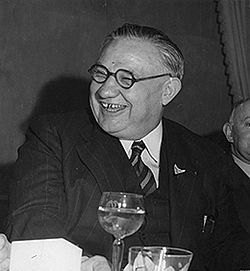
| 27 July 1945
| 9 March 1951
| Labour
| style="background-color: " |
| rowspan=2 align=center bgcolor=white|•
| rowspan=2 style="background-color: " |
| rowspan=2|Clement Attlee
|-
! style="background-color: " |
| Herbert Morrison
|
| 9 March 1951
| 26 October 1951
| Labour
| style="background-color: " |
|-
! style="background-color: " |
| Anthony Eden
|
| 28 October 1951
| 7 April 1955
| Conservative
| style="background-color: " |
| align=center bgcolor=white|•
| style="background-color: " |
| Sir Winston Churchill
|-
! style="background-color: " |
| Harold Macmillan
|
| 7 April 1955
| 20 December 1955
| Conservative
| style="background-color: " |
| rowspan=2 align=center bgcolor=white|•
| rowspan=2 style="background-color: " |
| rowspan=2|Sir Anthony Eden
|-
! rowspan=2 style="background-color: " |
| rowspan=2|Selwyn Lloyd
| rowspan=2|
| rowspan=2|20 December 1955
| rowspan=2|27 July 1960
| rowspan=2|Conservative
| rowspan=2 style="background-color: " |
|-
| rowspan=2 align=center bgcolor=white|•
| rowspan=2 style="background-color: " |
| rowspan=2|Harold Macmillan
|-
! style="background-color: " |
| The Earl of Home
|
| 27 July 1960
| 20 October 1963
| Conservative
| style="background-color: " |
|-
! style="background-color: " |
| R. A. Butler
|
| 20 October 1963
| 16 October 1964
| Conservative
| style="background-color: " |
| align=center bgcolor=white|•
| style="background-color: " |
| Sir Alec Douglas-Home
|-
! style="background-color: " |
| Patrick Gordon Walker
|
| 16 October 1964
| 22 January 1965
(lost seat 1964
)
| Labour
| style="background-color: " |
| rowspan=4 align=center bgcolor=white|•
| rowspan=4 style="background-color: " |
| rowspan=4|Harold Wilson
|-
! style="background-color: " |
| Michael Stewart
|
| 22 January 1965
| 11 August 1966
| Labour
| style="background-color: " |
|-
! style="background-color: " |
| George Brown
|
| 11 August 1966
| 16 March 1968
(resigned)
| Labour
| style="background-color: " |
|-
! style="background-color: " |
| Michael Stewart
|
| 16 March 1968
| 17 October 1968
| Labour
| style="background-color: " |
|-
! colspan=10|
|-
! colspan=2|Name
! width=60px|Portrait
! colspan=2|Term of office
! colspan=2|Political party
! colspan=3|Prime Minister
|-
! style="background-color: " |
| Michael Stewart
|
| 17 October 1968
| 19 June 1970
| Labour
| style="background-color: " |
| align=center bgcolor=white|•
| style="background-color: " |
| Harold Wilson
|-
! style="background-color: " |
| Sir Alec Douglas-Home
|
| 20 June 1970
| 28 February 1974
| Conservative
| style="background-color: " |
| align=center bgcolor=white|•
| style="background-color: " |
| Edward Heath
|-
! style="background-color: " |
| James Callaghan
|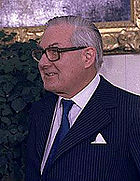
| 5 March 1974
| 5 April 1976
| Labour
| style="background-color: " |
| align=center bgcolor=white|•
| style="background-color: " |
| Harold Wilson
|-
! style="background-color: " |
| Anthony Crosland
|
| 8 April 1976
| 19 February 1977
(died)
| Labour
| style="background-color: " |
| rowspan=2 align=center bgcolor=white|•
| rowspan=2 style="background-color: " |
| rowspan=2|James Callaghan
|-
! style="background-color: " |
| David Owen
|
| 22 February 1977
| 4 May 1979
| Labour
| style="background-color: " |
|-
! style="background-color: " |
| The Lord Carrington
|
| 5 May 1979
| 5 April 1982
(resigned)
| Conservative
| style="background-color: " |
| rowspan=5 align=center bgcolor=white|•
| rowspan=5 style="background-color: " |
| rowspan=5|Margaret Thatcher
|-
! style="background-color: " |
| Francis Pym
|
| 6 April 1982
| 11 June 1983
| Conservative
| style="background-color: " |
|-
! style="background-color: " |
| Sir Geoffrey Howe
|
| 11 June 1983
| 24 July 1989
| Conservative
| style="background-color: " |
|-
! style="background-color: " |
| John Major
|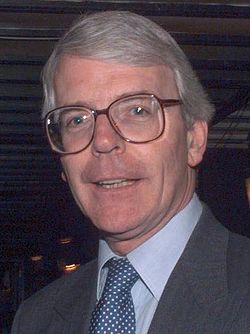
| 24 July 1989
| 26 October 1989
| Conservative
| style="background-color: " |
|-
! rowspan=2 style="background-color: " |
| rowspan=2|Douglas Hurd
| rowspan=2|
| rowspan=2|26 October 1989
| rowspan=2|5 July 1995
| rowspan=2|Conservative
| rowspan=2 style="background-color: " |
|-
| rowspan=2 align=center bgcolor=white|•
| rowspan=2 style="background-color: " |
| rowspan=2|John Major
|-
! style="background-color: " |
| Malcolm Rifkind
|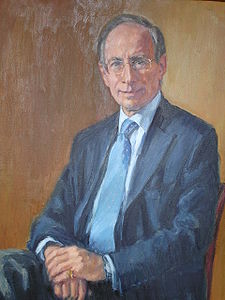
| 5 July 1995
| 2 May 1997
| Conservative
| style="background-color: " |
|-
! style="background-color: " |
| Robin Cook
|
| 2 May 1997
| 8 June 2001
| Labour
| style="background-color: " |
| rowspan=3 align=center bgcolor=white|•
| rowspan=3 style="background-color: " |
| rowspan=3|Tony Blair
|-
! style="background-color: " |
| Jack Straw
|
| 8 June 2001
| 5 May 2006
| Labour
| style="background-color: " |
|-
! style="background-color: " |
| Margaret Beckett
|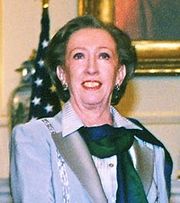
| 5 May 2006
| 28 June 2007
| Labour
| style="background-color: " |
|-
! style="background-color: " |
| David Miliband
|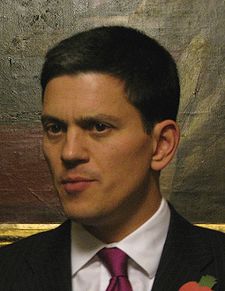
| 28 June 2007
| 11 May 2010
| Labour
| style="background-color: " |
| align=center bgcolor=white|•
| style="background-color: " |
| Gordon Brown
|-
! style="background-color: " |
| William Hague
|
| 11 May 2010
| Incumbent
| Conservative
| style="background-color: " |
| align=center bgcolor=#A9A9A9|•
| style="background-color: " |
| David Cameron
|}
Foreign and Commonwealth Office
The Foreign and Commonwealth Office, commonly called the Foreign Office or the FCO is a British government department responsible for promoting the interests of the United Kingdom overseas, created in 1968 by merging the Foreign Office and the Commonwealth Office.The head of the FCO is the...
and regarded as one of the Great Offices of State
Great Offices of State
The Great Offices of State in the United Kingdom are the four most senior and prestigious posts in the British parliamentary system of government. They are the Prime Minister, the Chancellor of the Exchequer, the Foreign Secretary and the Home Secretary. Since 11 May 2010 these posts have been...
. The Secretary of State's remit include: relations with foreign countries, matters pertaining to the Commonwealth of Nations
Commonwealth of Nations
The Commonwealth of Nations, normally referred to as the Commonwealth and formerly known as the British Commonwealth, is an intergovernmental organisation of fifty-four independent member states...
and the overseas territories
British overseas territories
The British Overseas Territories are fourteen territories of the United Kingdom which, although they do not form part of the United Kingdom itself, fall under its jurisdiction. They are remnants of the British Empire that have not acquired independence or have voted to remain British territories...
in addition to the promotion of British interests abroad. The Foreign Secretary also has responsibility for the Secret Intelligence Service
Secret Intelligence Service
The Secret Intelligence Service is responsible for supplying the British Government with foreign intelligence. Alongside the internal Security Service , the Government Communications Headquarters and the Defence Intelligence , it operates under the formal direction of the Joint Intelligence...
MI6, who are directly accountable to the Foreign Secretary.
Position
The position of Secretary of State for Foreign Affairs was created in the British governmental reorganisation of 1782, in which the NorthernSecretary of State for the Northern Department
The Secretary of State for the Northern Department was a position in the Cabinet of the government of Great Britain up to 1782. Before the Act of Union, 1707, the Secretary of State's responsibilities were in relation to the English government, not the British. Even after the Union, there was...
and Southern Department
Secretary of State for the Southern Department
The Secretary of State for the Southern Department was a position in the cabinet of the government of Kingdom of Great Britain up to 1782.Before 1782, the responsibilities of the two British Secretaries of State were divided not based on the principles of modern ministerial divisions, but...
s became the Home
Home Office
The Home Office is the United Kingdom government department responsible for immigration control, security, and order. As such it is responsible for the police, UK Border Agency, and the Security Service . It is also in charge of government policy on security-related issues such as drugs,...
and Foreign Offices respectively. The position of Secretary of State for Foreign and Commonwealth Affairs came into existence in 1968 with the merger of the functions of Secretary of State for Foreign Affairs and Secretary of State for Commonwealth Affairs
Secretary of State for Commonwealth Affairs
The position of Secretary of State for Commonwealth Affairs was created on 1 August 1966 by the merger of the old positions of Secretary of State for Commonwealth Relations and Secretary of State for the Colonies. The position dealt with British relations with members of the Commonwealth of Nations...
into a single Department of State
Departments of the United Kingdom Government
Her Majesty's Government of the United Kingdom contains a number of Cabinet ministers who are usually called secretaries of state when they are in charge of Government departments called ministerial departments...
. The India Office
India Office
The India Office was a British government department created in 1858 to oversee the colonial administration of India, i.e. the modern-day nations of Bangladesh, Burma, India, and Pakistan, as well as territories in South-east and Central Asia, the Middle East, and parts of the east coast of Africa...
was a predecessor department of the Foreign Office.
The Foreign Secretary is a member of the Cabinet
Cabinet of the United Kingdom
The Cabinet of the United Kingdom is the collective decision-making body of Her Majesty's Government in the United Kingdom, composed of the Prime Minister and some 22 Cabinet Ministers, the most senior of the government ministers....
, and the post is considered one of the Great Offices of State
Great Offices of State
The Great Offices of State in the United Kingdom are the four most senior and prestigious posts in the British parliamentary system of government. They are the Prime Minister, the Chancellor of the Exchequer, the Foreign Secretary and the Home Secretary. Since 11 May 2010 these posts have been...
. The Foreign Secretary works out of the Foreign Office in Whitehall
Whitehall
Whitehall is a road in Westminster, in London, England. It is the main artery running north from Parliament Square, towards Charing Cross at the southern end of Trafalgar Square...
. The post's official residence
Official residence
An official residence is the residence at which heads of state, heads of government, gubernatorial or other senior figures officially reside...
s are 1 Carlton Gardens
Carlton House Terrace
Carlton House Terrace refers to a street in the St. James's district of the City of Westminster in London, England, and in particular to two terraces of white stucco-faced houses on the south side of the street overlooking St. James's Park. These terraces were built in 1827–32 to overall designs by...
in London and Chevening
Chevening
Chevening, also known as Chevening House, is a country house at Chevening in the Sevenoaks District of Kent, in England. It is an official residence of the Foreign Secretary of the United Kingdom...
in Kent. In the 2006 reshuffle, Margaret Beckett
Margaret Beckett
Margaret Mary Beckett is a British Labour Party politician who has been the Member of Parliament for Derby South since 1983, rising to become the Deputy Leader of the Labour Party under John Smith, from 18 July 1992 to 12 May 1994, and briefly serving as Leader of the Party following Smith's death...
became the first (and only) woman to hold the post.
The current Secretary of State for Foreign and Commonwealth Affairs is the Right Honourable William Hague
William Hague
William Jefferson Hague is the British Foreign Secretary and First Secretary of State. He served as Leader of the Conservative Party from June 1997 to September 2001...
MP.
Secretaries of State for Foreign Affairs, 1782–1801
|-! colspan=2|Name
! width=60px|Portrait
! colspan=2|Term of office
! colspan=2|Political party
! colspan=3|Prime Minister
|-
! style="background-color: " |
| Charles James Fox
Charles James Fox
Charles James Fox PC , styled The Honourable from 1762, was a prominent British Whig statesman whose parliamentary career spanned thirty-eight years of the late 18th and early 19th centuries and who was particularly noted for being the arch-rival of William Pitt the Younger...
|

| 27 March 1782
| 5 July 1782
(resigned)
| Whig
| style="background-color: " |
| align=center bgcolor=white|•
Second Rockingham Ministry
This is a list of the principal holders of government office during the second premiership of Charles Watson-Wentworth, 2nd Marquess of Rockingham, from March to July 1782....
| style="background-color: " |
| The Marquess of Rockingham
Charles Watson-Wentworth, 2nd Marquess of Rockingham
Charles Watson-Wentworth, 2nd Marquess of Rockingham, KG, PC , styled The Hon. Charles Watson-Wentworth before 1733, Viscount Higham between 1733 and 1746, Earl of Malton between 1746 and 1750 and The Earl Malton in 1750, was a British Whig statesman, most notable for his two terms as Prime...
|-
! style="background-color: " |
| The Lord Grantham
Thomas Robinson, 2nd Baron Grantham
Thomas Robinson, 2nd Baron Grantham PC was a British politician and statesman. He notably served as Foreign Secretary between 1782 and 1783.-Background and education:...
|
| 13 July 1782
| 2 April 1783
| Whig
| style="background-color: " |
| align=center bgcolor=white|•
Second Rockingham Ministry
This is a list of the principal holders of government office during the second premiership of Charles Watson-Wentworth, 2nd Marquess of Rockingham, from March to July 1782....
| style="background-color: " |
| The Earl of Shelburne
William Petty, 2nd Earl of Shelburne
William Petty-FitzMaurice, 1st Marquess of Lansdowne, KG, PC , known as The Earl of Shelburne between 1761 and 1784, by which title he is generally known to history, was an Irish-born British Whig statesman who was the first Home Secretary in 1782 and then Prime Minister 1782–1783 during the final...
|-
! style="background-color: " |
| Charles James Fox
Charles James Fox
Charles James Fox PC , styled The Honourable from 1762, was a prominent British Whig statesman whose parliamentary career spanned thirty-eight years of the late 18th and early 19th centuries and who was particularly noted for being the arch-rival of William Pitt the Younger...
|

| 2 April 1783
| 19 December 1783
| Whig
| style="background-color: " |
| align=center bgcolor=#A9A9A9|•
Fox-North Coalition
The Fox-North Coalition was a government in Great Britain that held office during 1783. As the name suggests, the ministry was a coalition of the groups supporting Charles James Fox and Lord North...
| style="background-color: " |
| The Duke of Portland
William Cavendish-Bentinck, 3rd Duke of Portland
William Henry Cavendish-Bentinck, 3rd Duke of Portland, KG, PC was a British Whig and Tory statesman, Chancellor of the University of Oxford and Prime Minister. He was known before 1762 by the courtesy title Marquess of Titchfield. He held a title of every degree of British nobility—Duke,...
|-
! style="background-color: " |
| The Earl Temple
George Nugent-Temple-Grenville, 1st Marquess of Buckingham
George Nugent-Temple-Grenville, 1st Marquess of Buckingham, KG, PC was a British statesman. He was the second son of George Grenville and a brother of the 1st Baron Grenville.-Career:...
|

| 19 December 1783
| 23 December 1783
| Tory
| style="background-color: " |
| rowspan=3 align=center bgcolor=white|•
First Pitt the Younger Ministry
-The initial ministry:For the first several days of the ministry, Lord Temple held both the secretaryships of state.-Changes:*March, 1784 - The Duke of Rutland becomes Lord-Lieutenant of Ireland, remaining also Lord Privy Seal....
| rowspan=3 style="background-color: " |
| rowspan=3|William Pitt the Younger
William Pitt the Younger
William Pitt the Younger was a British politician of the late 18th and early 19th centuries. He became the youngest Prime Minister in 1783 at the age of 24 . He left office in 1801, but was Prime Minister again from 1804 until his death in 1806...
|-
! style="background-color: " |
| The Marquess of Carmarthen
Francis Osborne, 5th Duke of Leeds
Francis Godolphin Osborne, 5th Duke of Leeds KG, PC , styled Marquess of Carmarthen until 1789, was a British politician...
(Duke of Leeds from 1789)
|

| 23 December 1783
| May 1791
(resigned)
| Tory
| style="background-color: " |
|-
! style="background-color: " |
| The Lord Grenville
|

| 8 June 1791
| 20 February 1801
| Tory
| style="background-color: " |
|-
! colspan=10|
Secretaries of State for Foreign Affairs, 1801–1900
|-! colspan=2|Name
! width=60px|Portrait
! colspan=2|Term of office
! colspan=2|Political party
! colspan=3|Prime Minister
|-
! style="background-color: " |
| The Lord Hawkesbury
Robert Jenkinson, 2nd Earl of Liverpool
Robert Banks Jenkinson, 2nd Earl of Liverpool KG PC was a British politician and the longest-serving Prime Minister of the United Kingdom since the Union with Ireland in 1801. He was 42 years old when he became premier in 1812 which made him younger than all of his successors to date...
(subsequently
Earl of Liverpool)
|

| 20 February 1801
| 14 May 1804
| Tory
| style="background-color: " |
| align=center bgcolor=white|•
Addington Ministry
The Addington Ministry was a government ministry led by the Tory Henry Addington, notable as an interlude between the two ministries of William Pitt the Younger. It is most notable for the Peace of Amiens which marked a brief cessation in the Napoleonic Wars....
| style="background-color: " |
| Henry Addington
Henry Addington, 1st Viscount Sidmouth
Henry Addington, 1st Viscount Sidmouth, PC was a British statesman, and Prime Minister of the United Kingdom from 1801 to 1804....
|-
! style="background-color: " |
| The Lord Harrowby
Dudley Ryder, 1st Earl of Harrowby
Dudley Ryder, 1st Earl of Harrowby, PC, FSA was a prominent British politician of the Pittite faction and the Tory party.-Background and education:...
|

| 14 May 1804
| 11 January 1805
| Tory
| style="background-color: " |
| rowspan=2 align=center bgcolor=white|•
Second Pitt the Younger Ministry
-The Initial Ministry:Changes*January, 1805 - Lord Mulgrave succeeds Lord Harrowby as Foreign Secretary. Lord Buckinghamshire succeeds Mulgrave at the Duchy of Lancaster. Lord Sidmouth succeeds the Duke of Portland as Lord President...
| rowspan=2 style="background-color: " |
| rowspan=2|William Pitt the Younger
William Pitt the Younger
William Pitt the Younger was a British politician of the late 18th and early 19th centuries. He became the youngest Prime Minister in 1783 at the age of 24 . He left office in 1801, but was Prime Minister again from 1804 until his death in 1806...
|-
! style="background-color: " |
| The Lord Mulgrave
Henry Phipps, 1st Earl of Mulgrave
Henry Phipps, 1st Earl of Mulgrave GCB, PC , styled The Honourable Henry Phipps until 1792 and known as The Lord Mulgrave from 1792 to 1812, was a British soldier and politician...
|
| 11 January 1805
| 7 February 1806
| Tory
| style="background-color: " |
|-
! style="background-color: " |
| Charles James Fox
Charles James Fox
Charles James Fox PC , styled The Honourable from 1762, was a prominent British Whig statesman whose parliamentary career spanned thirty-eight years of the late 18th and early 19th centuries and who was particularly noted for being the arch-rival of William Pitt the Younger...
|

| 7 February 1806
| 13 September 1806
(died)
| Whig
| style="background-color: " |
| rowspan=2 align=center bgcolor=#A9A9A9|•
Ministry of All the Talents
The Ministry of All the Talents was a national unity government formed by William Wyndham Grenville, 1st Baron Grenville on his appointment as Prime Minister of the United Kingdom on 11 February 1806 after the death of William Pitt the Younger...
| rowspan=2 style="background-color: " |
| rowspan=2|Lord Grenville
|-
! style="background-color: " |
| Viscount Howick
Charles Grey, 2nd Earl Grey
Charles Grey, 2nd Earl Grey, KG, PC , known as Viscount Howick between 1806 and 1807, was Prime Minister of the United Kingdom of Great Britain and Ireland from 22 November 1830 to 16 July 1834. A member of the Whig Party, he backed significant reform of the British government and was among the...
(subsequently
Earl Grey)
|

| 24 September 1806
| 25 March 1807
| Whig
| style="background-color: " |
|-
! style="background-color: " |
| George Canning
George Canning
George Canning PC, FRS was a British statesman and politician who served as Foreign Secretary and briefly Prime Minister.-Early life: 1770–1793:...
|

| 25 March 1807
| 11 October 1809
(resigned)
| Tory
| style="background-color: " |
| rowspan=2 align=center bgcolor=white|•
| rowspan=2 style="background-color: " |
| rowspan=2|The Duke of Portland
William Cavendish-Bentinck, 3rd Duke of Portland
William Henry Cavendish-Bentinck, 3rd Duke of Portland, KG, PC was a British Whig and Tory statesman, Chancellor of the University of Oxford and Prime Minister. He was known before 1762 by the courtesy title Marquess of Titchfield. He held a title of every degree of British nobility—Duke,...
|-
! style="background-color: " |
| The Earl Bathurst
Henry Bathurst, 3rd Earl Bathurst
Henry Bathurst, 3rd Earl Bathurst KG PC was a British politician.-Background and education:Lord Bathurst was the elder son of Henry Bathurst, 2nd Earl Bathurst, by his wife Tryphena, daughter of Thomas Scawen...
|

| 11 October 1809
| 6 December 1809
| Tory
| style="background-color: " |
|-
! style="background-color: " |
| The Marquess Wellesley
Richard Wellesley, 1st Marquess Wellesley
Richard Colley Wesley, later Wellesley, 1st Marquess Wellesley, KG, PC, PC , styled Viscount Wellesley from birth until 1781, was an Anglo-Irish politician and colonial administrator....
|

| 6 December 1809
| 4 March 1812
|
| style="background-color: " |
| align=center bgcolor=white|•
Tory Government 1809–1812
This is a list of members of the Tory government of the United Kingdom in office under the leadership of Spencer Perceval from 1809 to 1812.Members of the Cabinet are in bold face.-References:...
| style="background-color: " |
| Spencer Perceval
Spencer Perceval
Spencer Perceval, KC was a British statesman and First Lord of the Treasury, making him de facto Prime Minister. He is the only British Prime Minister to have been assassinated...
|-
! style="background-color: " |
| Viscount Castlereagh
Robert Stewart, Viscount Castlereagh
Robert Stewart, 2nd Marquess of Londonderry, KG, GCH, PC, PC , usually known as Lord CastlereaghThe name Castlereagh derives from the baronies of Castlereagh and Ards, in which the manors of Newtownards and Comber were located...
|

| 4 March 1812
| 12 August 1822
(died)
| Tory
| style="background-color: " |
| rowspan=2 align=center bgcolor=white|•
| rowspan=2 style="background-color: " |
| rowspan=2|The Earl of Liverpool
Robert Jenkinson, 2nd Earl of Liverpool
Robert Banks Jenkinson, 2nd Earl of Liverpool KG PC was a British politician and the longest-serving Prime Minister of the United Kingdom since the Union with Ireland in 1801. He was 42 years old when he became premier in 1812 which made him younger than all of his successors to date...
|-
! style="background-color: " |
| George Canning
George Canning
George Canning PC, FRS was a British statesman and politician who served as Foreign Secretary and briefly Prime Minister.-Early life: 1770–1793:...
|

| 16 September 1822
| 30 April 1827
| Tory
| style="background-color: " |
|-
! rowspan=2 style="background-color: " |
| rowspan=2|The Earl of Dudley
| rowspan=2|
| rowspan=2|30 April 1827
| rowspan=2|2 June 1828
| rowspan=2|Tory
| rowspan=2 style="background-color: " |
| align=center bgcolor=#A9A9A9|•
| style="background-color: " |
| George Canning
George Canning
George Canning PC, FRS was a British statesman and politician who served as Foreign Secretary and briefly Prime Minister.-Early life: 1770–1793:...
|-
| align=center bgcolor=#A9A9A9|•
Goderich Ministry
Viscount Goderich's government came to power in September 1827 following the death of Canning. It was a tenuous coalition of moderate Tories - also known as the Canningites and Whigs, but it only lasted a few months and did not even meet Parliament.-The Cabinet:...
| style="background-color: " |
| The Viscount Goderich
Frederick John Robinson, 1st Viscount Goderich
Frederick John Robinson, 1st Earl of Ripon PC , styled The Honourable F. J. Robinson until 1827 and known as The Viscount Goderich between 1827 and 1833, the name by which he is best known to history, was a British statesman...
|-
! style="background-color: " |
| The Earl of Aberdeen
George Hamilton-Gordon, 4th Earl of Aberdeen
George Hamilton-Gordon, 4th Earl of Aberdeen KG, KT, FRS, PC , styled Lord Haddo from 1791 to 1801, was a Scottish politician, successively a Tory, Conservative and Peelite, who served as Prime Minister of the United Kingdom from 1852 until 1855.-Early life:Born in Edinburgh on 28 January 1784, he...
|

| 2 June 1828
| 22 November 1830
| Tory
| style="background-color: " |
| align=center bgcolor=white|•
Wellington Ministry
The ministry came to power after the failure of Goderich's coalition government in 1828. It was defeated in 1830 due to Wellington's opposition to parliamentary reform.-The Cabinet:-See also:...
| style="background-color: " |
| The Duke of Wellington
Arthur Wellesley, 1st Duke of Wellington
Field Marshal Arthur Wellesley, 1st Duke of Wellington, KG, GCB, GCH, PC, FRS , was an Irish-born British soldier and statesman, and one of the leading military and political figures of the 19th century...
|-
! rowspan=2 style="background-color: " |
| rowspan=2|Viscount Palmerston
Henry Temple, 3rd Viscount Palmerston
Henry John Temple, 3rd Viscount Palmerston, KG, GCB, PC , known popularly as Lord Palmerston, was a British statesman who served twice as Prime Minister in the mid-19th century...
| rowspan=2|

| rowspan=2|22 November 1830
| rowspan=2|14 November 1834
| rowspan=2|Whig
| rowspan=2 style="background-color: " |
| align=center bgcolor=white|•
Grey Ministry
-The Cabinet:-See also:*Whig Government 1830–1834, for a complete list of officeholders in the government....
| style="background-color: " |
| The Earl Grey
Charles Grey, 2nd Earl Grey
Charles Grey, 2nd Earl Grey, KG, PC , known as Viscount Howick between 1806 and 1807, was Prime Minister of the United Kingdom of Great Britain and Ireland from 22 November 1830 to 16 July 1834. A member of the Whig Party, he backed significant reform of the British government and was among the...
|-
| align=center bgcolor=white|•
First Melbourne Ministry
-The Cabinet:-See also:*Whig Government 1830-1834, for a complete list of officeholders in the government....
| style="background-color: " |
| The Viscount Melbourne
William Lamb, 2nd Viscount Melbourne
William Lamb, 2nd Viscount Melbourne, PC, FRS was a British Whig statesman who served as Home Secretary and Prime Minister . He is best known for his intense and successful mentoring of Queen Victoria, at ages 18-21, in the ways of politics...
|-
! rowspan=2 style="background-color: " |
| rowspan=2|The Duke of Wellington
Arthur Wellesley, 1st Duke of Wellington
Field Marshal Arthur Wellesley, 1st Duke of Wellington, KG, GCB, GCH, PC, FRS , was an Irish-born British soldier and statesman, and one of the leading military and political figures of the 19th century...
| rowspan=2|

| rowspan=2|14 November 1834
| rowspan=2|18 April 1835
| rowspan=2|Tory
! rowspan=2 style="background-color: " |
| align=center bgcolor=white|•
| style="background-color: " |
| The Duke of Wellington
|-
| align=center bgcolor=white|•
First Peel ministry
-The Cabinet:-See also:*Conservative Government 1834-1835, for a complete list of officeholders in the government....
| style="background-color: " |
| Sir Robert Peel
Robert Peel
Sir Robert Peel, 2nd Baronet was a British Conservative statesman who served as Prime Minister of the United Kingdom from 10 December 1834 to 8 April 1835, and again from 30 August 1841 to 29 June 1846...
|-
! style="background-color: " |
| Viscount Palmerston
Henry Temple, 3rd Viscount Palmerston
Henry John Temple, 3rd Viscount Palmerston, KG, GCB, PC , known popularly as Lord Palmerston, was a British statesman who served twice as Prime Minister in the mid-19th century...
|

| 18 April 1835
| 2 September 1841
| Whig
| style="background-color: " |
| align=center bgcolor=white|•
Second Melbourne Ministry
-The Ministry:*Viscount Duncannon served concurrently as Lord Privy Seal and First Commissioner of Woods and Forests.*See here for a more detailed list, including those not in the Cabinet....
•
Third Melbourne Ministry
-The Ministry:*Viscount Duncannon served concurrently as Lord Privy Seal and First Commissioner of Woods and Forests between August 1839 and January 1840....
| style="background-color: " |
| The Viscount Melbourne
William Lamb, 2nd Viscount Melbourne
William Lamb, 2nd Viscount Melbourne, PC, FRS was a British Whig statesman who served as Home Secretary and Prime Minister . He is best known for his intense and successful mentoring of Queen Victoria, at ages 18-21, in the ways of politics...
|-
! style="background-color: " |
| The Earl of Aberdeen
George Hamilton-Gordon, 4th Earl of Aberdeen
George Hamilton-Gordon, 4th Earl of Aberdeen KG, KT, FRS, PC , styled Lord Haddo from 1791 to 1801, was a Scottish politician, successively a Tory, Conservative and Peelite, who served as Prime Minister of the United Kingdom from 1852 until 1855.-Early life:Born in Edinburgh on 28 January 1784, he...
|

| 2 September 1841
| 6 July 1846
| Conservative
Conservative Party (UK)
The Conservative Party, formally the Conservative and Unionist Party, is a centre-right political party in the United Kingdom that adheres to the philosophies of conservatism and British unionism. It is the largest political party in the UK, and is currently the largest single party in the House...
| style="background-color: " |
| align=center bgcolor=white|•
Second Peel ministry
-The Cabinet:Changes* October, 1841: Lord FitzGerald succeeds Lord Ellenborough as President of the Board of Control.* February, 1842: The Duke of Buccleuch succeeds the Duke of Buckingham as Lord Privy Seal....
| style="background-color: " |
| Sir Robert Peel
Robert Peel
Sir Robert Peel, 2nd Baronet was a British Conservative statesman who served as Prime Minister of the United Kingdom from 10 December 1834 to 8 April 1835, and again from 30 August 1841 to 29 June 1846...
|-
! style="background-color: " |
| Viscount Palmerston
Henry Temple, 3rd Viscount Palmerston
Henry John Temple, 3rd Viscount Palmerston, KG, GCB, PC , known popularly as Lord Palmerston, was a British statesman who served twice as Prime Minister in the mid-19th century...
|

| 6 July 1846
| 26 December 1851
| Whig
| style="background-color: " |
| rowspan=2 align=center bgcolor=white|•
First Russell ministry
-The Cabinet:† became the Earl of Carlisle in 1848‡ denotes becoming a member of the cabinet, not gaining the officeNotes*Lord Carlisle served as both Chancellor of the Duchy of Lancaster and First Commissioner of Woods and Forests between March and July 1850.Changes*July, 1847: Henry Labouchere...
| rowspan=2 style="background-color: " |
| rowspan=2|Lord John Russell
John Russell, 1st Earl Russell
John Russell, 1st Earl Russell, KG, GCMG, PC , known as Lord John Russell before 1861, was an English Whig and Liberal politician who served twice as Prime Minister of the United Kingdom in the mid-19th century....
|-
! style="background-color: " |
| The Earl Granville
Granville Leveson-Gower, 2nd Earl Granville
Granville George Leveson Gower, 2nd Earl Granville KG, PC FRS , styled Lord Leveson until 1846, was a British Liberal statesman...
|

| 26 December 1851
| 27 February 1852
| Whig
| style="background-color: " |
|-
! style="background-color: " |
| The Earl of Malmesbury
|

| 27 February 1852
| 28 December 1852
| Conservative
Conservative Party (UK)
The Conservative Party, formally the Conservative and Unionist Party, is a centre-right political party in the United Kingdom that adheres to the philosophies of conservatism and British unionism. It is the largest political party in the UK, and is currently the largest single party in the House...
| style="background-color: " |
| align=center bgcolor=white|•
| style="background-color: " |
| The 14th Earl of Derby
Edward Smith-Stanley, 14th Earl of Derby
Edward George Geoffrey Smith-Stanley, 14th Earl of Derby, KG, PC was an English statesman, three times Prime Minister of the United Kingdom, and to date the longest serving leader of the Conservative Party. He was known before 1834 as Edward Stanley, and from 1834 to 1851 as Lord Stanley...
|-
! style="background-color: " |
| Lord John Russell
John Russell, 1st Earl Russell
John Russell, 1st Earl Russell, KG, GCMG, PC , known as Lord John Russell before 1861, was an English Whig and Liberal politician who served twice as Prime Minister of the United Kingdom in the mid-19th century....
|

| 28 December 1852
| 21 February 1853
| Whig
| style="background-color: " |
| rowspan=2 align=center bgcolor=#A9A9A9|•
Aberdeen Ministry
-The Cabinet:† After June 1854 office became Secretary of State for War.Notes*Lord John Russell served as Leader of the House of Commons from December 1852 to February 1855.Changes...
| rowspan=2 style="background-color: " |
| rowspan=2|The Earl of Aberdeen
George Hamilton-Gordon, 4th Earl of Aberdeen
George Hamilton-Gordon, 4th Earl of Aberdeen KG, KT, FRS, PC , styled Lord Haddo from 1791 to 1801, was a Scottish politician, successively a Tory, Conservative and Peelite, who served as Prime Minister of the United Kingdom from 1852 until 1855.-Early life:Born in Edinburgh on 28 January 1784, he...
|-
! rowspan=2 style="background-color: " |
| rowspan=2|The Earl of Clarendon
George Villiers, 4th Earl of Clarendon
George William Frederick Villiers, 4th Earl of Clarendon KG, GCB, PC , was an English diplomat and statesman.-Background and education:...
| rowspan=2|

| rowspan=2|21 February 1853
| rowspan=2|26 February 1858
| rowspan=2|Whig
| rowspan=2 style="background-color: " |
|-
| align=center bgcolor=white|•
| style="background-color: " |
| Viscount Palmerston
|-
! style="background-color: " |
| The Earl of Malmesbury
|

| 26 February 1858
| 18 June 1859
| Conservative
Conservative Party (UK)
The Conservative Party, formally the Conservative and Unionist Party, is a centre-right political party in the United Kingdom that adheres to the philosophies of conservatism and British unionism. It is the largest political party in the UK, and is currently the largest single party in the House...
| style="background-color: " |
| align=center bgcolor=white|•
Second Derby Ministry
-The Ministry:-Reference:* British Historical Facts 1830-1900, by Chris Cook and Brendon Keith pp. 21-22 SBN 333 13220 3...
| style="background-color: " |
| The 14th Earl of Derby
Edward Smith-Stanley, 14th Earl of Derby
Edward George Geoffrey Smith-Stanley, 14th Earl of Derby, KG, PC was an English statesman, three times Prime Minister of the United Kingdom, and to date the longest serving leader of the Conservative Party. He was known before 1834 as Edward Stanley, and from 1834 to 1851 as Lord Stanley...
|-
! style="background-color: " |
| Lord John Russell
John Russell, 1st Earl Russell
John Russell, 1st Earl Russell, KG, GCMG, PC , known as Lord John Russell before 1861, was an English Whig and Liberal politician who served twice as Prime Minister of the United Kingdom in the mid-19th century....
(Earl Russell from 1861)
|

| 18 June 1859
| 3 November 1865
| Liberal
Liberal Party (UK)
The Liberal Party was one of the two major political parties of the United Kingdom during the 19th and early 20th centuries. It was a third party of negligible importance throughout the latter half of the 20th Century, before merging with the Social Democratic Party in 1988 to form the present day...
| style="background-color: " |
| align=center bgcolor=white|•
| style="background-color: " |
| Viscount Palmerston
|-
! style="background-color: " |
| The Earl of Clarendon
George Villiers, 4th Earl of Clarendon
George William Frederick Villiers, 4th Earl of Clarendon KG, GCB, PC , was an English diplomat and statesman.-Background and education:...
|

| 3 November 1865
| 6 July 1866
| Liberal
Liberal Party (UK)
The Liberal Party was one of the two major political parties of the United Kingdom during the 19th and early 20th centuries. It was a third party of negligible importance throughout the latter half of the 20th Century, before merging with the Social Democratic Party in 1988 to form the present day...
| style="background-color: " |
| align=center bgcolor=white|•
Second Russell ministry
-The Cabinet:Changes*February, 1866: The Lord de Grey succeeds Sir Charles Wood as Secretary for India. Lord Hartington succeeds Grey as Secretary for War.-References:...
| style="background-color: " |
| The Earl Russell
John Russell, 1st Earl Russell
John Russell, 1st Earl Russell, KG, GCMG, PC , known as Lord John Russell before 1861, was an English Whig and Liberal politician who served twice as Prime Minister of the United Kingdom in the mid-19th century....
|-
! rowspan=2 style="background-color: " |
| rowspan=2|Lord Stanley
Edward Stanley, 15th Earl of Derby
Edward Henry Stanley, 15th Earl of Derby KG, PC, FRS , known as Lord Stanley from 1844 to 1869, was a British statesman...
(subsequently
15th Earl of Derby)
| rowspan=2|

| rowspan=2|6 July 1866
| rowspan=2|9 December 1868
| rowspan=2|Conservative
Conservative Party (UK)
The Conservative Party, formally the Conservative and Unionist Party, is a centre-right political party in the United Kingdom that adheres to the philosophies of conservatism and British unionism. It is the largest political party in the UK, and is currently the largest single party in the House...
| rowspan=2 style="background-color: " |
| align=center bgcolor=white|•
Third Derby Ministry
-The Cabinet:*See here for a more detailed list, including those not in the Cabinet.Changes*March 1867: Lord Carnarvon, Lord Cranborne, and General Peel resign from the cabinet over the Reform Bill. They are succeeded by the Duke of Buckingham, Sir Stafford Northcote, and Sir John Pakington,...
| style="background-color: " |
| The 14th Earl of Derby
Edward Smith-Stanley, 14th Earl of Derby
Edward George Geoffrey Smith-Stanley, 14th Earl of Derby, KG, PC was an English statesman, three times Prime Minister of the United Kingdom, and to date the longest serving leader of the Conservative Party. He was known before 1834 as Edward Stanley, and from 1834 to 1851 as Lord Stanley...
|-
| align=center bgcolor=white|•
First Disraeli ministry
After the parliamentary session which produced the Second Reform Bill, Disraeli's eventual assumption of the leadership of the Conservative Party was all but assured...
| style="background-color: " |
| Benjamin Disraeli
|-
! style="background-color: " |
| The Earl of Clarendon
George Villiers, 4th Earl of Clarendon
George William Frederick Villiers, 4th Earl of Clarendon KG, GCB, PC , was an English diplomat and statesman.-Background and education:...
|

| 9 December 1868
| 6 July 1870
| Liberal
Liberal Party (UK)
The Liberal Party was one of the two major political parties of the United Kingdom during the 19th and early 20th centuries. It was a third party of negligible importance throughout the latter half of the 20th Century, before merging with the Social Democratic Party in 1988 to form the present day...
| style="background-color: " |
| rowspan=2 align=center bgcolor=white|•
First Gladstone Ministry
-The Cabinet:† The Earl de Grey was created the Marquess of Ripon in 1871. ‡ Henry Austin Bruce was created Baron Aberdare in 1873.Notes...
| rowspan=2 style="background-color: " |
| rowspan=2|William Ewart Gladstone
William Ewart Gladstone
William Ewart Gladstone FRS FSS was a British Liberal statesman. In a career lasting over sixty years, he served as Prime Minister four separate times , more than any other person. Gladstone was also Britain's oldest Prime Minister, 84 years old when he resigned for the last time...
|-
! style="background-color: " |
| The Earl Granville
Granville Leveson-Gower, 2nd Earl Granville
Granville George Leveson Gower, 2nd Earl Granville KG, PC FRS , styled Lord Leveson until 1846, was a British Liberal statesman...
|

| 6 July 1870
| 21 February 1874
| Liberal
Liberal Party (UK)
The Liberal Party was one of the two major political parties of the United Kingdom during the 19th and early 20th centuries. It was a third party of negligible importance throughout the latter half of the 20th Century, before merging with the Social Democratic Party in 1988 to form the present day...
| style="background-color: " |
|-
! style="background-color: " |
| The 15th Earl of Derby
Edward Stanley, 15th Earl of Derby
Edward Henry Stanley, 15th Earl of Derby KG, PC, FRS , known as Lord Stanley from 1844 to 1869, was a British statesman...
|

| 21 February 1874
| 2 April 1878
| Conservative
Conservative Party (UK)
The Conservative Party, formally the Conservative and Unionist Party, is a centre-right political party in the United Kingdom that adheres to the philosophies of conservatism and British unionism. It is the largest political party in the UK, and is currently the largest single party in the House...
| style="background-color: " |
| rowspan=2 align=center bgcolor=white|•
Second Disraeli ministry
-The Cabinet:† The Earl of Beaconsfield from August 1876.§ The Earl Cairns from September 1878.‡ The Viscount Cranbrook from May 1878.Notes*The Earl of Beaconsfield served as both First Lord of the Treasury and Lord Privy Seal from August 1876 to April 1878....
| rowspan=2 style="background-color: " |
| rowspan=2|Benjamin Disraeli
|-
! style="background-color: " |
| The Marquess of Salisbury
Robert Gascoyne-Cecil, 3rd Marquess of Salisbury
Robert Arthur Talbot Gascoyne-Cecil, 3rd Marquess of Salisbury, KG, GCVO, PC , styled Lord Robert Cecil before 1865 and Viscount Cranborne from June 1865 until April 1868, was a British Conservative statesman and thrice Prime Minister, serving for a total of over 13 years...
|
| 2 April 1878
| 28 April 1880
| Conservative
Conservative Party (UK)
The Conservative Party, formally the Conservative and Unionist Party, is a centre-right political party in the United Kingdom that adheres to the philosophies of conservatism and British unionism. It is the largest political party in the UK, and is currently the largest single party in the House...
| style="background-color: " |
|-
! style="background-color: " |
| The Earl Granville
Granville Leveson-Gower, 2nd Earl Granville
Granville George Leveson Gower, 2nd Earl Granville KG, PC FRS , styled Lord Leveson until 1846, was a British Liberal statesman...
|

| 28 April 1880
| 24 June 1885
| Liberal
Liberal Party (UK)
The Liberal Party was one of the two major political parties of the United Kingdom during the 19th and early 20th centuries. It was a third party of negligible importance throughout the latter half of the 20th Century, before merging with the Social Democratic Party in 1988 to form the present day...
| style="background-color: " |
| align=center bgcolor=white|•
Second Gladstone Ministry
-The Cabinet:†Created Earl of Selborne in 1882.Notes*William Ewart Gladstone served as both First Lord of the Treasury and Chancellor of the Exchequer between April 1880 and December 1882....
| style="background-color: " |
| William Ewart Gladstone
William Ewart Gladstone
William Ewart Gladstone FRS FSS was a British Liberal statesman. In a career lasting over sixty years, he served as Prime Minister four separate times , more than any other person. Gladstone was also Britain's oldest Prime Minister, 84 years old when he resigned for the last time...
|-
! style="background-color: " |
| The Marquess of Salisbury
Robert Gascoyne-Cecil, 3rd Marquess of Salisbury
Robert Arthur Talbot Gascoyne-Cecil, 3rd Marquess of Salisbury, KG, GCVO, PC , styled Lord Robert Cecil before 1865 and Viscount Cranborne from June 1865 until April 1868, was a British Conservative statesman and thrice Prime Minister, serving for a total of over 13 years...
|
| 24 June 1885
| 6 February 1886
| Conservative
Conservative Party (UK)
The Conservative Party, formally the Conservative and Unionist Party, is a centre-right political party in the United Kingdom that adheres to the philosophies of conservatism and British unionism. It is the largest political party in the UK, and is currently the largest single party in the House...
| style="background-color: " |
| align=center bgcolor=white|•
First Salisbury Ministry
-The Ministry:Notes*Lord Cranbrook served concurrently as Lord President of the Council and Secretary of State for War between January and February 1886.Changes...
| style="background-color: " |
| The Marquess of Salisbury
|-
! style="background-color: " |
| The Earl of Rosebery
Archibald Primrose, 5th Earl of Rosebery
Archibald Philip Primrose, 5th Earl of Rosebery, KG, PC was a British Liberal statesman and Prime Minister. Between the death of his father, in 1851, and the death of his grandfather, the 4th Earl, in 1868, he was known by the courtesy title of Lord Dalmeny.Rosebery was a Liberal Imperialist who...
|
| 6 February 1886
| 3 August 1886
| Liberal
Liberal Party (UK)
The Liberal Party was one of the two major political parties of the United Kingdom during the 19th and early 20th centuries. It was a third party of negligible importance throughout the latter half of the 20th Century, before merging with the Social Democratic Party in 1988 to form the present day...
| style="background-color: " |
| align=center bgcolor=white|•
Third Gladstone Ministry
-The Cabinet:ChangesApril, 1886: James Stansfeld succeeds Joseph Chamberlain at the Local Government Board. The Earl of Dalhousie succeeds George Otto Trevelyan as Secretary for Scotland....
| style="background-color: " |
| William Ewart Gladstone
William Ewart Gladstone
William Ewart Gladstone FRS FSS was a British Liberal statesman. In a career lasting over sixty years, he served as Prime Minister four separate times , more than any other person. Gladstone was also Britain's oldest Prime Minister, 84 years old when he resigned for the last time...
|-
! style="background-color: " |
| The Earl of Iddesleigh
Stafford Northcote, 1st Earl of Iddesleigh
Stafford Henry Northcote, 1st Earl of Iddesleigh GCB, PC , known as Sir Stafford Northcote, Bt, from 1851 to 1885, was a British Conservative politician...
|
| 3 August 1886
| 12 January 1887
(died)
| Conservative
Conservative Party (UK)
The Conservative Party, formally the Conservative and Unionist Party, is a centre-right political party in the United Kingdom that adheres to the philosophies of conservatism and British unionism. It is the largest political party in the UK, and is currently the largest single party in the House...
| style="background-color: " |
| rowspan=2 align=center bgcolor=white|•
| rowspan=2 style="background-color: " |
| rowspan=2|The Marquess of Salisbury
|-
! style="background-color: " |
| The Marquess of Salisbury
Robert Gascoyne-Cecil, 3rd Marquess of Salisbury
Robert Arthur Talbot Gascoyne-Cecil, 3rd Marquess of Salisbury, KG, GCVO, PC , styled Lord Robert Cecil before 1865 and Viscount Cranborne from June 1865 until April 1868, was a British Conservative statesman and thrice Prime Minister, serving for a total of over 13 years...
|
| 14 January 1887
| 11 August 1892
| Conservative
Conservative Party (UK)
The Conservative Party, formally the Conservative and Unionist Party, is a centre-right political party in the United Kingdom that adheres to the philosophies of conservatism and British unionism. It is the largest political party in the UK, and is currently the largest single party in the House...
| style="background-color: " |
|-
! style="background-color: " |
| The Earl of Rosebery
Archibald Primrose, 5th Earl of Rosebery
Archibald Philip Primrose, 5th Earl of Rosebery, KG, PC was a British Liberal statesman and Prime Minister. Between the death of his father, in 1851, and the death of his grandfather, the 4th Earl, in 1868, he was known by the courtesy title of Lord Dalmeny.Rosebery was a Liberal Imperialist who...
|
| 18 August 1892
| 11 March 1894
| Liberal
Liberal Party (UK)
The Liberal Party was one of the two major political parties of the United Kingdom during the 19th and early 20th centuries. It was a third party of negligible importance throughout the latter half of the 20th Century, before merging with the Social Democratic Party in 1988 to form the present day...
| style="background-color: " |
| align=center bgcolor=white|•
Fourth Gladstone Ministry
-The Cabinet:For a more detailed list, including ministers not in the Cabinet, see Liberal Government 1892-1895....
| style="background-color: " |
| William Ewart Gladstone
William Ewart Gladstone
William Ewart Gladstone FRS FSS was a British Liberal statesman. In a career lasting over sixty years, he served as Prime Minister four separate times , more than any other person. Gladstone was also Britain's oldest Prime Minister, 84 years old when he resigned for the last time...
|-
! style="background-color: " |
| The Earl of Kimberley
John Wodehouse, 1st Earl of Kimberley
John Wodehouse, 1st Earl of Kimberley KG , PC , known as the Lord Wodehouse from 1846 to 1866, was a British Liberal politician...
|

| 11 March 1894
| 21 June 1895
| Liberal
Liberal Party (UK)
The Liberal Party was one of the two major political parties of the United Kingdom during the 19th and early 20th centuries. It was a third party of negligible importance throughout the latter half of the 20th Century, before merging with the Social Democratic Party in 1988 to form the present day...
| style="background-color: " |
| align=center bgcolor=white|•
| style="background-color: " |
| The Earl of Rosebery
Archibald Primrose, 5th Earl of Rosebery
Archibald Philip Primrose, 5th Earl of Rosebery, KG, PC was a British Liberal statesman and Prime Minister. Between the death of his father, in 1851, and the death of his grandfather, the 4th Earl, in 1868, he was known by the courtesy title of Lord Dalmeny.Rosebery was a Liberal Imperialist who...
|-
! style="background-color: " |
| The Marquess of Salisbury
Robert Gascoyne-Cecil, 3rd Marquess of Salisbury
Robert Arthur Talbot Gascoyne-Cecil, 3rd Marquess of Salisbury, KG, GCVO, PC , styled Lord Robert Cecil before 1865 and Viscount Cranborne from June 1865 until April 1868, was a British Conservative statesman and thrice Prime Minister, serving for a total of over 13 years...
|
| 29 June 1895
| 12 November 1900
| Conservative
Conservative Party (UK)
The Conservative Party, formally the Conservative and Unionist Party, is a centre-right political party in the United Kingdom that adheres to the philosophies of conservatism and British unionism. It is the largest political party in the UK, and is currently the largest single party in the House...
| style="background-color: " |
| align=center bgcolor=#A9A9A9|•
| style="background-color: " |
| The Marquess of Salisbury
|-
! colspan=10|
Secretaries of State for Foreign Affairs, 1900–1968
|-! colspan=2|Name
! width=60px|Portrait
! colspan=2|Term of office
! colspan=2|Political party
! colspan=3|Prime Minister
|-
! rowspan=2 style="background-color: " |
| rowspan=2|The Marquess of Lansdowne
Henry Petty-FitzMaurice, 5th Marquess of Lansdowne
Henry Charles Keith Petty-Fitzmaurice, 5th Marquess of Lansdowne, KG, GCSI, GCMG, GCIE, PC was a British politician and Irish peer who served successively as the fifth Governor General of Canada, Viceroy of India, Secretary of State for War, and Secretary of State for Foreign Affairs...
| rowspan=2|

| rowspan=2|12 November 1900
| rowspan=2|4 December 1905
| rowspan=2|Liberal Unionist
Liberal Unionist Party
The Liberal Unionist Party was a British political party that was formed in 1886 by a faction that broke away from the Liberal Party. Led by Lord Hartington and Joseph Chamberlain, the party formed a political alliance with the Conservative Party in opposition to Irish Home Rule...
| rowspan=2 style="background-color: " |
| align=center bgcolor=#A9A9A9|•
| style="background-color: " |
| The Marquess of Salisbury
Robert Gascoyne-Cecil, 3rd Marquess of Salisbury
Robert Arthur Talbot Gascoyne-Cecil, 3rd Marquess of Salisbury, KG, GCVO, PC , styled Lord Robert Cecil before 1865 and Viscount Cranborne from June 1865 until April 1868, was a British Conservative statesman and thrice Prime Minister, serving for a total of over 13 years...
|-
| align=center bgcolor=#A9A9A9|•
| style="background-color: " |
| Arthur Balfour
Arthur Balfour
Arthur James Balfour, 1st Earl of Balfour, KG, OM, PC, DL was a British Conservative politician and statesman...
|-
! rowspan=3 style="background-color: " |
| rowspan=3|Sir Edward Grey, Bt
Edward Grey, 1st Viscount Grey of Fallodon
Edward Grey, 1st Viscount Grey of Fallodon KG, PC, FZL, DL , better known as Sir Edward Grey, Bt, was a British Liberal statesman. He served as Foreign Secretary from 1905 to 1916, the longest continuous tenure of any person in that office...
| rowspan=3|

| rowspan=3|10 December 1905
| rowspan=3|10 December 1916
| rowspan=3|Liberal
Liberal Party (UK)
The Liberal Party was one of the two major political parties of the United Kingdom during the 19th and early 20th centuries. It was a third party of negligible importance throughout the latter half of the 20th Century, before merging with the Social Democratic Party in 1988 to form the present day...
| rowspan=3 style="background-color: " |
| align=center bgcolor=white|•
| style="background-color: " |
| Sir Henry Campbell-Bannerman
Henry Campbell-Bannerman
Sir Henry Campbell-Bannerman GCB was a British Liberal Party politician who served as Prime Minister of the United Kingdom from 1905 to 1908 and Leader of the Liberal Party from 1899 to 1908. He also served as Secretary of State for War twice, in the Cabinets of Gladstone and Rosebery...
|-
| align=center bgcolor=white|•
First Asquith ministry
-The Cabinet:Changes*September 1908 - Lord Wolverhampton succeeds Lord Tweedmouth as Lord President. Lord FitzMaurice succeeds Lord Wolverhampton as Chancellor of the Duchy of Lancaster....
| rowspan=2 style="background-color: " |
| rowspan=2|Herbert Henry Asquith
|-
| align=center bgcolor=#A9A9A9|•
|-
! style="background-color: " |
| Arthur Balfour
Arthur Balfour
Arthur James Balfour, 1st Earl of Balfour, KG, OM, PC, DL was a British Conservative politician and statesman...
|

| 10 December 1916
| 23 October 1919
| Conservative
Conservative Party (UK)
The Conservative Party, formally the Conservative and Unionist Party, is a centre-right political party in the United Kingdom that adheres to the philosophies of conservatism and British unionism. It is the largest political party in the UK, and is currently the largest single party in the House...
| style="background-color: " |
| rowspan=2 align=center bgcolor=#A9A9A9|•
| rowspan=2 style="background-color: " |
| rowspan=2|David Lloyd George
David Lloyd George
David Lloyd George, 1st Earl Lloyd-George of Dwyfor OM, PC was a British Liberal politician and statesman...
|-
! rowspan=3 style="background-color: " |
| rowspan=3|The Earl Curzon of Kedleston
George Curzon, 1st Marquess Curzon of Kedleston
George Nathaniel Curzon, 1st Marquess Curzon of Kedleston, KG, GCSI, GCIE, PC , known as The Lord Curzon of Kedleston between 1898 and 1911 and as The Earl Curzon of Kedleston between 1911 and 1921, was a British Conservative statesman who was Viceroy of India and Foreign Secretary...
(Marquess Curzon of Kedleston from 1921)
| rowspan=3|

| rowspan=3|23 October 1919
| rowspan=3|22 January 1924
| rowspan=3|Conservative
Conservative Party (UK)
The Conservative Party, formally the Conservative and Unionist Party, is a centre-right political party in the United Kingdom that adheres to the philosophies of conservatism and British unionism. It is the largest political party in the UK, and is currently the largest single party in the House...
| rowspan=3 style="background-color: " |
|-
| rowspan=2 align=center bgcolor=white|•
| style="background-color: " |
| Andrew Bonar Law
|-
| style="background-color: " |
| Stanley Baldwin
Stanley Baldwin
Stanley Baldwin, 1st Earl Baldwin of Bewdley, KG, PC was a British Conservative politician, who dominated the government in his country between the two world wars...
|-
! style="background-color: " |
| Ramsay MacDonald
Ramsay MacDonald
James Ramsay MacDonald, PC, FRS was a British politician who was the first ever Labour Prime Minister, leading a minority government for two terms....
|

| 22 January 1924
| 3 November 1924
| Labour
Labour Party (UK)
The Labour Party is a centre-left democratic socialist party in the United Kingdom. It surpassed the Liberal Party in general elections during the early 1920s, forming minority governments under Ramsay MacDonald in 1924 and 1929-1931. The party was in a wartime coalition from 1940 to 1945, after...
| style="background-color: " |
| align=center bgcolor=white|•
Labour Government 1924
See also First Labour Government Members of the Cabinet are in bold face.Source: D. Butler and G. Butler, Twentieth Century British Political Facts 1900-2000...
| style="background-color: " |
| Ramsay MacDonald
|-
! style="background-color: " |
| Sir Austen Chamberlain
Austen Chamberlain
Sir Joseph Austen Chamberlain, KG was a British statesman, recipient of the Nobel Peace Prize and half-brother of Neville Chamberlain.- Early life and career :...
|

| 6 November 1924
| 4 June 1929
| Conservative
Conservative Party (UK)
The Conservative Party, formally the Conservative and Unionist Party, is a centre-right political party in the United Kingdom that adheres to the philosophies of conservatism and British unionism. It is the largest political party in the UK, and is currently the largest single party in the House...
| style="background-color: " |
| align=center bgcolor=white|•
| style="background-color: " |
| Stanley Baldwin
Stanley Baldwin
Stanley Baldwin, 1st Earl Baldwin of Bewdley, KG, PC was a British Conservative politician, who dominated the government in his country between the two world wars...
|-
! style="background-color: " |
| Arthur Henderson
Arthur Henderson
Arthur Henderson was a British iron moulder and Labour politician. He was the 1934 Nobel Peace Prize Laureate and he served three short terms as the Leader of the Labour Party from 1908–1910, 1914–1917 and 1931-1932....
|

| 7 June 1929
| 24 August 1931
| Labour
Labour Party (UK)
The Labour Party is a centre-left democratic socialist party in the United Kingdom. It surpassed the Liberal Party in general elections during the early 1920s, forming minority governments under Ramsay MacDonald in 1924 and 1929-1931. The party was in a wartime coalition from 1940 to 1945, after...
| style="background-color: " |
| align=center bgcolor=white|•
| style="background-color: " |
| rowspan=3|Ramsay MacDonald
Ramsay MacDonald
James Ramsay MacDonald, PC, FRS was a British politician who was the first ever Labour Prime Minister, leading a minority government for two terms....
|-
! style="background-color: " |
| The Marquess of Reading
Rufus Isaacs, 1st Marquess of Reading
Rufus Isaacs, 1st Marquess of Reading, GCB, GCSI, GCIE, GCVO, PC, KC , was an English lawyer, jurist and politician...
|

| 25 August 1931
| 5 November 1931
| Liberal
Liberal Party (UK)
The Liberal Party was one of the two major political parties of the United Kingdom during the 19th and early 20th centuries. It was a third party of negligible importance throughout the latter half of the 20th Century, before merging with the Social Democratic Party in 1988 to form the present day...
| style="background-color: " |
| align=center bgcolor=#A9A9A9|•
| rowspan=2 style="background-color: " |
|-
! style="background-color: " |
| Sir John Simon
John Simon, 1st Viscount Simon
John Allsebrook Simon, 1st Viscount Simon GCSI GCVO OBE PC was a British politician who held senior Cabinet posts from the beginning of the First World War to the end of the Second. He is one of only three people to have served as Home Secretary, Foreign Secretary and Chancellor of the Exchequer,...
|
| 5 November 1931
| 7 June 1935
| Liberal National
National Liberal Party (UK, 1931)
The National Liberal Party, known until 1948 as the Liberal National Party, was a liberal political party in the United Kingdom from 1931 to 1968...
| style="background-color: " |
| align=center bgcolor=#A9A9A9|•
Second National Government 1931–1935
The United Kingdom's National Government was composed of members of the following parties:*National Labour*Conservative Party*Liberal Party*Liberal National Party...
|-
! style="background-color: " |
| Sir Samuel Hoare, Bt
|
| 7 June 1935
| 18 December 1935
(resigned)
| Conservative
Conservative Party (UK)
The Conservative Party, formally the Conservative and Unionist Party, is a centre-right political party in the United Kingdom that adheres to the philosophies of conservatism and British unionism. It is the largest political party in the UK, and is currently the largest single party in the House...
| style="background-color: " |
| rowspan=2 align=center bgcolor=#A9A9A9|•
| rowspan=2 style="background-color: " |
| rowspan=2|Stanley Baldwin
Stanley Baldwin
Stanley Baldwin, 1st Earl Baldwin of Bewdley, KG, PC was a British Conservative politician, who dominated the government in his country between the two world wars...
|-
! rowspan=2 style="background-color: " |
| rowspan=2|Anthony Eden
Anthony Eden
Robert Anthony Eden, 1st Earl of Avon, KG, MC, PC was a British Conservative politician, who was Prime Minister from 1955 to 1957...
| rowspan=2|

| rowspan=2|22 December 1935
| rowspan=2|20 February 1938
(resigned)
| rowspan=2|Conservative
Conservative Party (UK)
The Conservative Party, formally the Conservative and Unionist Party, is a centre-right political party in the United Kingdom that adheres to the philosophies of conservatism and British unionism. It is the largest political party in the UK, and is currently the largest single party in the House...
| rowspan=2 style="background-color: " |
|-
| rowspan=2 align=center bgcolor=#A9A9A9|•
| rowspan=2 style="background-color: " |
| rowspan=2|Neville Chamberlain
Neville Chamberlain
Arthur Neville Chamberlain FRS was a British Conservative politician who served as Prime Minister of the United Kingdom from May 1937 to May 1940. Chamberlain is best known for his appeasement foreign policy, and in particular for his signing of the Munich Agreement in 1938, conceding the...
|-
! style="background-color: " |
| The Viscount Halifax
E. F. L. Wood, 1st Earl of Halifax
Edward Frederick Lindley Wood, 1st Earl of Halifax, , known as The Lord Irwin from 1925 until 1934 and as The Viscount Halifax from 1934 until 1944, was one of the most senior British Conservative politicians of the 1930s, during which he held several senior ministerial posts, most notably as...
|
| 21 February 1938
| 22 December 1940
| Conservative
Conservative Party (UK)
The Conservative Party, formally the Conservative and Unionist Party, is a centre-right political party in the United Kingdom that adheres to the philosophies of conservatism and British unionism. It is the largest political party in the UK, and is currently the largest single party in the House...
| style="background-color: " |
|-
! style="background-color: " |
| Anthony Eden
Anthony Eden
Robert Anthony Eden, 1st Earl of Avon, KG, MC, PC was a British Conservative politician, who was Prime Minister from 1955 to 1957...
|

| 22 December 1940
| 26 July 1945
| Conservative
Conservative Party (UK)
The Conservative Party, formally the Conservative and Unionist Party, is a centre-right political party in the United Kingdom that adheres to the philosophies of conservatism and British unionism. It is the largest political party in the UK, and is currently the largest single party in the House...
| style="background-color: " |
| align=center bgcolor=#A9A9A9|•
Churchill War Ministry
-The War Cabinet:Changes*August 1940: Lord Beaverbrook , Minister of Aircraft Production, joins the War Cabinet*October 1940: Sir John Anderson succeeds Neville Chamberlain as Lord President. Sir Kingsley Wood, the Chancellor of the Exchequer, and Ernest Bevin, the Minister of Labour, enter the War...
•
| style="background-color: " |
| Winston Churchill
Winston Churchill
Sir Winston Leonard Spencer-Churchill, was a predominantly Conservative British politician and statesman known for his leadership of the United Kingdom during the Second World War. He is widely regarded as one of the greatest wartime leaders of the century and served as Prime Minister twice...
|-
! style="background-color: " |
| Ernest Bevin
Ernest Bevin
Ernest Bevin was a British trade union leader and Labour politician. He served as general secretary of the powerful Transport and General Workers' Union from 1922 to 1945, as Minister of Labour in the war-time coalition government, and as Foreign Secretary in the post-war Labour Government.-Early...
|

| 27 July 1945
| 9 March 1951
| Labour
Labour Party (UK)
The Labour Party is a centre-left democratic socialist party in the United Kingdom. It surpassed the Liberal Party in general elections during the early 1920s, forming minority governments under Ramsay MacDonald in 1924 and 1929-1931. The party was in a wartime coalition from 1940 to 1945, after...
| style="background-color: " |
| rowspan=2 align=center bgcolor=white|•
| rowspan=2 style="background-color: " |
| rowspan=2|Clement Attlee
Clement Attlee
Clement Richard Attlee, 1st Earl Attlee, KG, OM, CH, PC, FRS was a British Labour politician who served as the Prime Minister of the United Kingdom from 1945 to 1951, and as the Leader of the Labour Party from 1935 to 1955...
|-
! style="background-color: " |
| Herbert Morrison
Herbert Morrison
Herbert Stanley Morrison, Baron Morrison of Lambeth, CH, PC was a British Labour politician; he held a various number of senior positions in the Cabinet, including Home Secretary, Foreign Secretary and Deputy Prime Minister.-Early life:Morrison was the son of a police constable and was born in...
|
| 9 March 1951
| 26 October 1951
| Labour
Labour Party (UK)
The Labour Party is a centre-left democratic socialist party in the United Kingdom. It surpassed the Liberal Party in general elections during the early 1920s, forming minority governments under Ramsay MacDonald in 1924 and 1929-1931. The party was in a wartime coalition from 1940 to 1945, after...
| style="background-color: " |
|-
! style="background-color: " |
| Anthony Eden
Anthony Eden
Robert Anthony Eden, 1st Earl of Avon, KG, MC, PC was a British Conservative politician, who was Prime Minister from 1955 to 1957...
|

| 28 October 1951
| 7 April 1955
| Conservative
Conservative Party (UK)
The Conservative Party, formally the Conservative and Unionist Party, is a centre-right political party in the United Kingdom that adheres to the philosophies of conservatism and British unionism. It is the largest political party in the UK, and is currently the largest single party in the House...
| style="background-color: " |
| align=center bgcolor=white|•
| style="background-color: " |
| Sir Winston Churchill
Winston Churchill
Sir Winston Leonard Spencer-Churchill, was a predominantly Conservative British politician and statesman known for his leadership of the United Kingdom during the Second World War. He is widely regarded as one of the greatest wartime leaders of the century and served as Prime Minister twice...
|-
! style="background-color: " |
| Harold Macmillan
Harold Macmillan
Maurice Harold Macmillan, 1st Earl of Stockton, OM, PC was Conservative Prime Minister of the United Kingdom from 10 January 1957 to 18 October 1963....
|

| 7 April 1955
| 20 December 1955
| Conservative
Conservative Party (UK)
The Conservative Party, formally the Conservative and Unionist Party, is a centre-right political party in the United Kingdom that adheres to the philosophies of conservatism and British unionism. It is the largest political party in the UK, and is currently the largest single party in the House...
| style="background-color: " |
| rowspan=2 align=center bgcolor=white|•
| rowspan=2 style="background-color: " |
| rowspan=2|Sir Anthony Eden
Anthony Eden
Robert Anthony Eden, 1st Earl of Avon, KG, MC, PC was a British Conservative politician, who was Prime Minister from 1955 to 1957...
|-
! rowspan=2 style="background-color: " |
| rowspan=2|Selwyn Lloyd
Selwyn Lloyd
John Selwyn Brooke Lloyd, Baron Selwyn-Lloyd CH PC CBE TD , known for most of his career as Selwyn Lloyd, was a British Conservative Party politician who served as Foreign Secretary from 1955 to 1960, then as Chancellor of the Exchequer until 1962...
| rowspan=2|
| rowspan=2|20 December 1955
| rowspan=2|27 July 1960
| rowspan=2|Conservative
Conservative Party (UK)
The Conservative Party, formally the Conservative and Unionist Party, is a centre-right political party in the United Kingdom that adheres to the philosophies of conservatism and British unionism. It is the largest political party in the UK, and is currently the largest single party in the House...
| rowspan=2 style="background-color: " |
|-
| rowspan=2 align=center bgcolor=white|•
| rowspan=2 style="background-color: " |
| rowspan=2|Harold Macmillan
Harold Macmillan
Maurice Harold Macmillan, 1st Earl of Stockton, OM, PC was Conservative Prime Minister of the United Kingdom from 10 January 1957 to 18 October 1963....
|-
! style="background-color: " |
| The Earl of Home
Alec Douglas-Home
Alexander Frederick Douglas-Home, Baron Home of the Hirsel, KT, PC , known as The Earl of Home from 1951 to 1963 and as Sir Alec Douglas-Home from 1963 to 1974, was a British Conservative politician who served as Prime Minister of the United Kingdom from October 1963 to October 1964.He is the last...
|
| 27 July 1960
| 20 October 1963
| Conservative
Conservative Party (UK)
The Conservative Party, formally the Conservative and Unionist Party, is a centre-right political party in the United Kingdom that adheres to the philosophies of conservatism and British unionism. It is the largest political party in the UK, and is currently the largest single party in the House...
| style="background-color: " |
|-
! style="background-color: " |
| R. A. Butler
Rab Butler
Richard Austen Butler, Baron Butler of Saffron Walden, KG CH DL PC , who invariably signed his name R. A. Butler and was familiarly known as Rab, was a British Conservative politician...
|
| 20 October 1963
| 16 October 1964
| Conservative
Conservative Party (UK)
The Conservative Party, formally the Conservative and Unionist Party, is a centre-right political party in the United Kingdom that adheres to the philosophies of conservatism and British unionism. It is the largest political party in the UK, and is currently the largest single party in the House...
| style="background-color: " |
| align=center bgcolor=white|•
| style="background-color: " |
| Sir Alec Douglas-Home
Alec Douglas-Home
Alexander Frederick Douglas-Home, Baron Home of the Hirsel, KT, PC , known as The Earl of Home from 1951 to 1963 and as Sir Alec Douglas-Home from 1963 to 1974, was a British Conservative politician who served as Prime Minister of the United Kingdom from October 1963 to October 1964.He is the last...
|-
! style="background-color: " |
| Patrick Gordon Walker
|
| 16 October 1964
| 22 January 1965
(lost seat 1964
United Kingdom general election, 1964
The United Kingdom general election of 1964 was held on 15 October 1964, more than five years after the preceding election, and thirteen years after the Conservative Party had retaken power...
)
| Labour
Labour Party (UK)
The Labour Party is a centre-left democratic socialist party in the United Kingdom. It surpassed the Liberal Party in general elections during the early 1920s, forming minority governments under Ramsay MacDonald in 1924 and 1929-1931. The party was in a wartime coalition from 1940 to 1945, after...
| style="background-color: " |
| rowspan=4 align=center bgcolor=white|•
| rowspan=4 style="background-color: " |
| rowspan=4|Harold Wilson
Harold Wilson
James Harold Wilson, Baron Wilson of Rievaulx, KG, OBE, FRS, FSS, PC was a British Labour Member of Parliament, Leader of the Labour Party. He was twice Prime Minister of the United Kingdom during the 1960s and 1970s, winning four general elections, including a minority government after the...
|-
! style="background-color: " |
| Michael Stewart
Michael Stewart, Baron Stewart of Fulham
Robert Michael Maitland Stewart, Baron Stewart of Fulham, CH, PC was a British Labour politician and Fabian Socialist who served twice as Foreign Secretary in the first cabinet of Harold Wilson.- Early life :...
|
| 22 January 1965
| 11 August 1966
| Labour
Labour Party (UK)
The Labour Party is a centre-left democratic socialist party in the United Kingdom. It surpassed the Liberal Party in general elections during the early 1920s, forming minority governments under Ramsay MacDonald in 1924 and 1929-1931. The party was in a wartime coalition from 1940 to 1945, after...
| style="background-color: " |
|-
! style="background-color: " |
| George Brown
George Brown, Baron George-Brown
George Alfred Brown, Baron George-Brown, PC was a British Labour politician, who served as the Deputy Leader of the Labour Party from 1960 to 1970, and served in a number of positions in the Cabinet, most notably as Foreign Secretary, in the Labour Government of the 1960s...
|
| 11 August 1966
| 16 March 1968
(resigned)
| Labour
Labour Party (UK)
The Labour Party is a centre-left democratic socialist party in the United Kingdom. It surpassed the Liberal Party in general elections during the early 1920s, forming minority governments under Ramsay MacDonald in 1924 and 1929-1931. The party was in a wartime coalition from 1940 to 1945, after...
| style="background-color: " |
|-
! style="background-color: " |
| Michael Stewart
Michael Stewart, Baron Stewart of Fulham
Robert Michael Maitland Stewart, Baron Stewart of Fulham, CH, PC was a British Labour politician and Fabian Socialist who served twice as Foreign Secretary in the first cabinet of Harold Wilson.- Early life :...
|
| 16 March 1968
| 17 October 1968
| Labour
Labour Party (UK)
The Labour Party is a centre-left democratic socialist party in the United Kingdom. It surpassed the Liberal Party in general elections during the early 1920s, forming minority governments under Ramsay MacDonald in 1924 and 1929-1931. The party was in a wartime coalition from 1940 to 1945, after...
| style="background-color: " |
|-
! colspan=10|
Secretaries of State for Foreign and Commonwealth Affairs, 1968–present
Post created through the merger of the Foreign Office and the Commonwealth Office.|-
! colspan=2|Name
! width=60px|Portrait
! colspan=2|Term of office
! colspan=2|Political party
! colspan=3|Prime Minister
|-
! style="background-color: " |
| Michael Stewart
Michael Stewart, Baron Stewart of Fulham
Robert Michael Maitland Stewart, Baron Stewart of Fulham, CH, PC was a British Labour politician and Fabian Socialist who served twice as Foreign Secretary in the first cabinet of Harold Wilson.- Early life :...
|
| 17 October 1968
| 19 June 1970
| Labour
Labour Party (UK)
The Labour Party is a centre-left democratic socialist party in the United Kingdom. It surpassed the Liberal Party in general elections during the early 1920s, forming minority governments under Ramsay MacDonald in 1924 and 1929-1931. The party was in a wartime coalition from 1940 to 1945, after...
| style="background-color: " |
| align=center bgcolor=white|•
| style="background-color: " |
| Harold Wilson
Harold Wilson
James Harold Wilson, Baron Wilson of Rievaulx, KG, OBE, FRS, FSS, PC was a British Labour Member of Parliament, Leader of the Labour Party. He was twice Prime Minister of the United Kingdom during the 1960s and 1970s, winning four general elections, including a minority government after the...
|-
! style="background-color: " |
| Sir Alec Douglas-Home
Alec Douglas-Home
Alexander Frederick Douglas-Home, Baron Home of the Hirsel, KT, PC , known as The Earl of Home from 1951 to 1963 and as Sir Alec Douglas-Home from 1963 to 1974, was a British Conservative politician who served as Prime Minister of the United Kingdom from October 1963 to October 1964.He is the last...
|
| 20 June 1970
| 28 February 1974
| Conservative
Conservative Party (UK)
The Conservative Party, formally the Conservative and Unionist Party, is a centre-right political party in the United Kingdom that adheres to the philosophies of conservatism and British unionism. It is the largest political party in the UK, and is currently the largest single party in the House...
| style="background-color: " |
| align=center bgcolor=white|•
| style="background-color: " |
| Edward Heath
Edward Heath
Sir Edward Richard George "Ted" Heath, KG, MBE, PC was a British Conservative politician who served as Prime Minister of the United Kingdom and as Leader of the Conservative Party ....
|-
! style="background-color: " |
| James Callaghan
James Callaghan
Leonard James Callaghan, Baron Callaghan of Cardiff, KG, PC , was a British Labour politician, who was Prime Minister of the United Kingdom from 1976 to 1979 and Leader of the Labour Party from 1976 to 1980...
|

| 5 March 1974
| 5 April 1976
| Labour
Labour Party (UK)
The Labour Party is a centre-left democratic socialist party in the United Kingdom. It surpassed the Liberal Party in general elections during the early 1920s, forming minority governments under Ramsay MacDonald in 1924 and 1929-1931. The party was in a wartime coalition from 1940 to 1945, after...
| style="background-color: " |
| align=center bgcolor=white|•
| style="background-color: " |
| Harold Wilson
Harold Wilson
James Harold Wilson, Baron Wilson of Rievaulx, KG, OBE, FRS, FSS, PC was a British Labour Member of Parliament, Leader of the Labour Party. He was twice Prime Minister of the United Kingdom during the 1960s and 1970s, winning four general elections, including a minority government after the...
|-
! style="background-color: " |
| Anthony Crosland
Anthony Crosland
Charles Anthony Raven Crosland , otherwise Tony Crosland or C.A.R. Crosland, was a British Labour Party politician and author. He served as Member of Parliament for South Gloucestershire and later for Great Grimsby...
|
| 8 April 1976
| 19 February 1977
(died)
| Labour
Labour Party (UK)
The Labour Party is a centre-left democratic socialist party in the United Kingdom. It surpassed the Liberal Party in general elections during the early 1920s, forming minority governments under Ramsay MacDonald in 1924 and 1929-1931. The party was in a wartime coalition from 1940 to 1945, after...
| style="background-color: " |
| rowspan=2 align=center bgcolor=white|•
Callaghan Ministry
This is the Cabinet list for former Prime Minister James Callaghan. His Cabinet was formed on 5 April 1976 after he took over from Harold Wilson and ended, upon his resignation, on 4 May 1979.-The Ministry:-See also:...
| rowspan=2 style="background-color: " |
| rowspan=2|James Callaghan
James Callaghan
Leonard James Callaghan, Baron Callaghan of Cardiff, KG, PC , was a British Labour politician, who was Prime Minister of the United Kingdom from 1976 to 1979 and Leader of the Labour Party from 1976 to 1980...
|-
! style="background-color: " |
| David Owen
David Owen
David Anthony Llewellyn Owen, Baron Owen CH PC FRCP is a British politician.Owen served as British Foreign Secretary from 1977 to 1979, the youngest person in over forty years to hold the post; he co-authored the failed Vance-Owen and Owen-Stoltenberg peace plans offered during the Bosnian War...
|
| 22 February 1977
| 4 May 1979
| Labour
Labour Party (UK)
The Labour Party is a centre-left democratic socialist party in the United Kingdom. It surpassed the Liberal Party in general elections during the early 1920s, forming minority governments under Ramsay MacDonald in 1924 and 1929-1931. The party was in a wartime coalition from 1940 to 1945, after...
| style="background-color: " |
|-
! style="background-color: " |
| The Lord Carrington
Peter Carington, 6th Baron Carrington
Peter Alexander Rupert Carington, 6th Baron Carrington, is a British Conservative politician. He served as British Foreign Secretary between 1979 and 1982 and as the sixth Secretary General of NATO from 1984 to 1988. He is the last surviving member of the Cabinets of both Harold Macmillan and Sir...
|
| 5 May 1979
| 5 April 1982
(resigned)
| Conservative
Conservative Party (UK)
The Conservative Party, formally the Conservative and Unionist Party, is a centre-right political party in the United Kingdom that adheres to the philosophies of conservatism and British unionism. It is the largest political party in the UK, and is currently the largest single party in the House...
| style="background-color: " |
| rowspan=5 align=center bgcolor=white|•
Thatcher Ministry
Margaret Thatcher was the Prime Minister of the United Kingdom between 4 May 1979 and 28 November 1990, during which time she led a Conservative government. She was the first woman to hold that office...
| rowspan=5 style="background-color: " |
| rowspan=5|Margaret Thatcher
Margaret Thatcher
Margaret Hilda Thatcher, Baroness Thatcher, was Prime Minister of the United Kingdom from 1979 to 1990...
|-
! style="background-color: " |
| Francis Pym
Francis Pym
-Bibliography:****- External links :...
|

| 6 April 1982
| 11 June 1983
| Conservative
Conservative Party (UK)
The Conservative Party, formally the Conservative and Unionist Party, is a centre-right political party in the United Kingdom that adheres to the philosophies of conservatism and British unionism. It is the largest political party in the UK, and is currently the largest single party in the House...
| style="background-color: " |
|-
! style="background-color: " |
| Sir Geoffrey Howe
Geoffrey Howe
Richard Edward Geoffrey Howe, Baron Howe of Aberavon, CH, QC, PC is a former British Conservative politician. He was Margaret Thatcher's longest-serving Cabinet minister, successively holding the posts of Chancellor of the Exchequer, Foreign Secretary, and finally Leader of the House of Commons...
|
| 11 June 1983
| 24 July 1989
| Conservative
Conservative Party (UK)
The Conservative Party, formally the Conservative and Unionist Party, is a centre-right political party in the United Kingdom that adheres to the philosophies of conservatism and British unionism. It is the largest political party in the UK, and is currently the largest single party in the House...
| style="background-color: " |
|-
! style="background-color: " |
| John Major
John Major
Sir John Major, is a British Conservative politician, who served as Prime Minister of the United Kingdom and Leader of the Conservative Party from 1990–1997...
|

| 24 July 1989
| 26 October 1989
| Conservative
Conservative Party (UK)
The Conservative Party, formally the Conservative and Unionist Party, is a centre-right political party in the United Kingdom that adheres to the philosophies of conservatism and British unionism. It is the largest political party in the UK, and is currently the largest single party in the House...
| style="background-color: " |
|-
! rowspan=2 style="background-color: " |
| rowspan=2|Douglas Hurd
Douglas Hurd
Douglas Richard Hurd, Baron Hurd of Westwell, CH, CBE, PC , is a British Conservative politician and novelist, who served in the governments of Margaret Thatcher and John Major between 1979 and his retirement in 1995....
| rowspan=2|
| rowspan=2|26 October 1989
| rowspan=2|5 July 1995
| rowspan=2|Conservative
Conservative Party (UK)
The Conservative Party, formally the Conservative and Unionist Party, is a centre-right political party in the United Kingdom that adheres to the philosophies of conservatism and British unionism. It is the largest political party in the UK, and is currently the largest single party in the House...
| rowspan=2 style="background-color: " |
|-
| rowspan=2 align=center bgcolor=white|•
Major Ministry
John Major was the Conservative Prime Minister of the United Kingdom for 6½ years from 28 November 1990 to 2 May 1997. He was first appointed Prime Minister having succeeded Margaret Thatcher as leader of the Conservative Party...
| rowspan=2 style="background-color: " |
| rowspan=2|John Major
John Major
Sir John Major, is a British Conservative politician, who served as Prime Minister of the United Kingdom and Leader of the Conservative Party from 1990–1997...
|-
! style="background-color: " |
| Malcolm Rifkind
Malcolm Rifkind
Sir Malcolm Leslie Rifkind KCMG QC MP is a British Conservative Party politician and Member of Parliament for Kensington. He served in various roles as a cabinet minister under Prime Ministers Margaret Thatcher and John Major, including Secretary of State for Scotland , Defence Secretary and...
|

| 5 July 1995
| 2 May 1997
| Conservative
Conservative Party (UK)
The Conservative Party, formally the Conservative and Unionist Party, is a centre-right political party in the United Kingdom that adheres to the philosophies of conservatism and British unionism. It is the largest political party in the UK, and is currently the largest single party in the House...
| style="background-color: " |
|-
! style="background-color: " |
| Robin Cook
Robin Cook
Robert Finlayson Cook was a British Labour Party politician, who was the Member of Parliament for Livingston from 1983 until his death, and notably served in the Cabinet as Foreign Secretary from 1997 to 2001....
|

| 2 May 1997
| 8 June 2001
| Labour
Labour Party (UK)
The Labour Party is a centre-left democratic socialist party in the United Kingdom. It surpassed the Liberal Party in general elections during the early 1920s, forming minority governments under Ramsay MacDonald in 1924 and 1929-1931. The party was in a wartime coalition from 1940 to 1945, after...
| style="background-color: " |
| rowspan=3 align=center bgcolor=white|•
Blair Ministry
Tony Blair was the Prime Minister of the United Kingdom for three successive parliamentary terms from 1997-2007. His Cabinet was reshuffled for each new parliament as well as changed during the three periods.-Formation:...
| rowspan=3 style="background-color: " |
| rowspan=3|Tony Blair
Tony Blair
Anthony Charles Lynton Blair is a former British Labour Party politician who served as the Prime Minister of the United Kingdom from 2 May 1997 to 27 June 2007. He was the Member of Parliament for Sedgefield from 1983 to 2007 and Leader of the Labour Party from 1994 to 2007...
|-
! style="background-color: " |
| Jack Straw
Jack Straw
Jack Straw , British politician.Jack Straw may also refer to:* Jack Straw , English* "Jack Straw" , 1971 song by the Grateful Dead* Jack Straw by W...
|

| 8 June 2001
| 5 May 2006
| Labour
Labour Party (UK)
The Labour Party is a centre-left democratic socialist party in the United Kingdom. It surpassed the Liberal Party in general elections during the early 1920s, forming minority governments under Ramsay MacDonald in 1924 and 1929-1931. The party was in a wartime coalition from 1940 to 1945, after...
| style="background-color: " |
|-
! style="background-color: " |
| Margaret Beckett
Margaret Beckett
Margaret Mary Beckett is a British Labour Party politician who has been the Member of Parliament for Derby South since 1983, rising to become the Deputy Leader of the Labour Party under John Smith, from 18 July 1992 to 12 May 1994, and briefly serving as Leader of the Party following Smith's death...
|

| 5 May 2006
| 28 June 2007
| Labour
Labour Party (UK)
The Labour Party is a centre-left democratic socialist party in the United Kingdom. It surpassed the Liberal Party in general elections during the early 1920s, forming minority governments under Ramsay MacDonald in 1924 and 1929-1931. The party was in a wartime coalition from 1940 to 1945, after...
| style="background-color: " |
|-
! style="background-color: " |
| David Miliband
David Miliband
David Wright Miliband is a British Labour Party politician who has been the Member of Parliament for South Shields since 2001, and was the Secretary of State for Foreign and Commonwealth Affairs from 2007 to 2010. He is the elder son of the late Marxist theorist Ralph Miliband...
|

| 28 June 2007
| 11 May 2010
| Labour
Labour Party (UK)
The Labour Party is a centre-left democratic socialist party in the United Kingdom. It surpassed the Liberal Party in general elections during the early 1920s, forming minority governments under Ramsay MacDonald in 1924 and 1929-1931. The party was in a wartime coalition from 1940 to 1945, after...
| style="background-color: " |
| align=center bgcolor=white|•
Brown Ministry
Gordon Brown took office as Prime Minister on 27 June 2007 and formed his Government. It ended, upon his resignation, on 11 May 2010. In his inaugural cabinet Brown appointed the UKs first female Home Secretary Jacqui Smith....
| style="background-color: " |
| Gordon Brown
Gordon Brown
James Gordon Brown is a British Labour Party politician who was the Prime Minister of the United Kingdom and Leader of the Labour Party from 2007 until 2010. He previously served as Chancellor of the Exchequer in the Labour Government from 1997 to 2007...
|-
! style="background-color: " |
| William Hague
William Hague
William Jefferson Hague is the British Foreign Secretary and First Secretary of State. He served as Leader of the Conservative Party from June 1997 to September 2001...
|
| 11 May 2010
| Incumbent
| Conservative
Conservative Party (UK)
The Conservative Party, formally the Conservative and Unionist Party, is a centre-right political party in the United Kingdom that adheres to the philosophies of conservatism and British unionism. It is the largest political party in the UK, and is currently the largest single party in the House...
| style="background-color: " |
| align=center bgcolor=#A9A9A9|•
Cameron Ministry
David Cameron is Prime Minister of the United Kingdom, after being invited by Queen Elizabeth II to form a new government after the resignation as Prime Minister of Gordon Brown on 11 May 2010. Leading a coalition government formed by the Conservative Party and the Liberal Democrats, the coalition...
| style="background-color: " |
| David Cameron
David Cameron
David William Donald Cameron is the current Prime Minister of the United Kingdom, First Lord of the Treasury, Minister for the Civil Service and Leader of the Conservative Party. Cameron represents Witney as its Member of Parliament ....
|}
See also
- Parliamentary Under-Secretary of State for Foreign Affairs
- Permanent Under-Secretary at the Foreign OfficePermanent Under-Secretary at the Foreign OfficeThis is a list of Permanent Under-Secretaries in the British Foreign and Commonwealth Office since 1790.Not to be confused with Parliamentary Under-Secretary of State for Foreign Affairs...
- Secretary of State for Commonwealth RelationsSecretary of State for Commonwealth RelationsThe Secretary of State for Commonwealth Relations was a British Cabinet office existing between 1947 and 1966, responsible for dealing with British relationship with members of the Commonwealth of Nations . The position was created out of the old position of Secretary of State for Dominion Affairs...
- Secretary of State for the ColoniesSecretary of State for the ColoniesThe Secretary of State for the Colonies or Colonial Secretary was the British Cabinet minister in charge of managing the United Kingdom's various colonial dependencies....
- Secretary of State for Dominion AffairsSecretary of State for Dominion AffairsThe position of Secretary of State for Dominion Affairs was a British cabinet level position created in 1925 responsible for British relations with the Dominions — Canada, Australia, New Zealand, South Africa, Newfoundland, and the Irish Free State, as well as the self-governing colony of...
- Foreign ministerForeign ministerA Minister of Foreign Affairs, or foreign minister, is a cabinet minister who helps form the foreign policy of a sovereign state. The foreign minister is often regarded as the most senior ministerial position below that of the head of government . It is often granted to the deputy prime minister in...

